- Home
- Carolyn Keene
Lights, Camera . . . Page 7
Lights, Camera . . . Read online
Page 7
Then he seemed to look through me. Without a word, he stormed toward the door. I stepped out of the way just in time to allow him to pass by.
Morris watched Halloran stomp off. Then he glanced over at me, and looked away quickly. His face was hard to read, but he looked as if he was hiding something. Was it embarrassment? Or anger? Guilt, maybe? I couldn’t tell. Whatever it was, it looked like he didn’t want to face me.
Finally I broke the silence. “Morris? What was all that about? Do you know Jack Halloran?”
“Not really,” he said. “I met him a couple of times when we first started talking about this project. He seemed totally on board with it then and offered his support. Seems to have changed his mind, wouldn’t you say?”
“It sure sounds like it. What brought this on, do you suppose?”
“He said he got a copy of the screenplay in the mail, and that it completely distorts the truth about the robbery and about his family.”
“Well, since the truth is that his ancestors did in fact pull off the biggest heist in this state’s history, I’m not sure what he’s upset about. I know Althea’s script is accurate. Luther’s seeing to that.”
“I told him he was way off base, and that there was nothing in the script that attacked his family from a personal standpoint. But he’s adamant about shutting us down.”
“Did he show you the script he got? I wonder if he got the final version.”
“No, I didn’t see it,” Morris answered. “You don’t suppose he’s behind some of the problems we’ve been having around here? He’s got a lot of money—that can buy a lot of sabotage.”
“I don’t know—he has a pretty good reputation, Morris. He seems to be an upright guy—he’s on all the right boards, sponsors some major charities, and runs a corporation full of loyal employees.”
“Yeah, a lot of people are like that until you start digging up the past.” Morris got this strange expression again. Was he finally reaching his limit? He looked as if the prospect of a major fight with Jack Halloran was going to be the final blow.
“If you need to talk to someone local about any legal—”
“No, thanks, Nancy.” He cut me off before I could say any more. When he turned, his expression was still a mystery. “I have to get to a finance meeting,” he said, looking at his watch. He definitely wanted me out of there.
“Sure, no problem,” I answered. “But, remember—”
“Thanks,” he said. He clipped the word off so fast, I barely heard the s.
I could tell he wasn’t in any mood to talk about production problems, so I smiled, wished him good luck, and left.
As I walked along the path, I went over the confrontation between Morris and Halloran in my mind. Halloran was right about most of it, of course. There had definitely been problems with the production from the very beginning. But that business about the script—that made no sense at all.
Morris was right too. Halloran certainly had the technical expertise and resources—and the money—to pull off all the sabotage. If he was determined to stop the making of Stealing Thunder, he could do it—one way or another.
As I walked I heard a sputter, and the huge work-lamps scattered around the compound began coming back to life, even though it was still light out. “Bess, you rock!” I whispered.
I stopped by Mrs. Fayne’s catering tent for a latte, and found Harold Safer there, talking with her about his cheese samples.
“Nancy! I’ve been looking everywhere for you,” Mr. Safer announced. Sometimes his speech is very dramatic.
“Mr. Safer. Bess told me you were here.”
“Is this one of the most exciting things that has ever happened to River Heights, or what?” Harold said. “A movie . . . being made right here . . . and you’re the star!”
“Now, Mr. Safer, you know better than that. You know the Rackham Heist legend as well as I do. Esther played a pretty small role then, and I’m playing a pretty small role now.”
“But you’re in the movie, Nancy. You’re actually acting with one of the giants of the Broadway stage.”
“Herman Houseman.”
“Yes,” Mr. Safer said. “I saw him in Long Day’s Journey into Night six years ago. It was a triumph.” As I watched him describe the event, I noticed something remarkable.
“Mr. Safer,” I blurted out, interrupting his story. “Do you realize that you look like Herman Houseman?”
“Me? Oh, don’t say that,” Mr. Safer protested. “He’s so handsome, with such a classic profile and dramatic eyes.”
“Just like you,” I insisted. “No kidding, you could be his double—his stand-in.”
“Oh, no,” Mr. Safer said. “Never. I could never presume to fill his shoes.” I could tell that the idea appealed to him, in spite of his denials. “Still,” he continued. “I’d surely love to meet him, to actually shake his hand—to tell him of my admiration for his marvelous talent.” He paused, waiting for my response.
“Sure, Mr. Safer,” I agreed. “Come on, let’s see if he’s around right now.”
Mr. Safer took off his chef’s apron—the one that modestly declared HAROLD SAFER, CHEESE MERCHANT in Old English script. Then he washed his hands, combed his hair, and proclaimed that he was ready.
We walked to Mr. Houseman’s trailer. It had the best location in the compound, on the bluff, with a beautiful view of the Muskoka and the meadows and forests beyond, leading to the horizon. Painted on his door was his name and a gold star.
Harold took a deep breath as we approached, and released it in small whistling puffs.
I knocked several times, but there was no answer. I thought I saw a curtain move slightly, so I called out. “Herman? It’s Nancy Drew. Are you in there?”
There was still no response, not even another curtain flutter.
“I’m sorry, Mr. Safer, I guess he’s not here right now. He could be in a dozen places—coaching, wardrobe, memorizing lines, rehearsing. He wouldn’t want to be interrupted in any of those, I’m sure. Can you come back up tomorrow? I’ll track him down for you then.”
“Of course,” Mr. Safer said. “I really need to get back to town anyway.” I saw how disappointed he was, and I was determined to get him an introduction. He walked back to Mrs. Fayne’s catering tent, and I strolled over to the generator semi. It was locked, so I went to the shop and found Bess there.
“I was just going to look for you,” she said. “Has Harold Safer found you yet? He was bugging me again about talking to you.”
I told her about my conversation with him.
“Are you sure Mr. Houseman wasn’t hiding in the trailer and just not answering you?” Bess asked. “He doesn’t seem very friendly to me. He’s definitely got an attitude.”
“Well, I’ll wear him down—for Mr. Safer’s sake. Is the generator fixed?”
“It is. When the sun goes down tonight, we’ll have lights—at least for a while. I closed shop for dinner, but some of the crew will be back this evening for another shift. And they’ll have power, at last.”
“So are you coming back in, too? I’m looking for a ride home. I have a coaching session tomorrow, and then a major rehearsal with the Rackham boys. And I don’t know all my lines yet. I have to get those down before then. I’m taking the evening off so I can show up prepared. If you’re planning to stay for the evening, I might be able to catch Mr. Safer before he leaves.”
“Actually, I was planning to go home for a shower and change of clothes at least. I’ve been working in that damp old semi nearly all day. I might come back later, but I can take you now if you’re ready. I talked to George a little while ago. She ran into another glitch, and intends to stay all night, if necessary, so she can finish the computer recovery by tomorrow.”
We stopped by the catering tent to leave a message for George with her mother. Then Bess drove me back to River Heights.
“What about the Musketeers?” she asked as we zipped past their protest camp.
“I definitely want
to talk to them, although I agree with Luther that they’re probably not behind the really serious problems with Stealing Thunder. Check back with me later this evening. If I’m comfortable with my lines by then, we can finally talk to the Musketeers on the way in to work tomorrow.”
“Sounds like a plan.”
We spent the rest of the ride to town talking about the case. I told her about my conversation with Jane Brandon, and our speculations about the padlock and blood at the generator semi. Then I relayed the exchange I’d overheard between Morris and Jack Halloran.
“Halloran,” Bess murmured. “He probably makes more money in a week than Morris’s budget for the whole movie!”
On Tuesday morning Bess picked me up, and we drove straight to the Muskoka Musketeers’ protest camp. George had stayed up most of the previous night, but had finished the data recovery. She had agreed to spend the next several days dividing her time between computer technical support and helping her mother with the catering.
The Musketeers’ camp was pretty rustic: makeshift shelters mixed with weathered, well-used hiking tarps and fresh-out-of-the-box family-size pup tents.
“Hi, I’m Bongo,” a friendly young man said as we got out of the car. “Are you here to join the cause?”
“Not exactly,” I answered. “I just wanted to ask you all a few questions.”
“You’re reporters? Great,” he said. “Hey, everyone, come on over. We’re getting some publicity at last!”
I saw no reason to dispute his claim. I took my notebook and pen from my jeans pocket. I could tell from Bess’s smile that she would play along.
“So, you’re saying that the moviemaking company is disturbing the environment, is that right?” I began.
“Sure, man,” Bongo said. “You got big semis tearing up all these little country roads. Machine shops, carpentry shops, food preparation. It’s like they’re putting in a little village up on that bluff. You can’t do that. What about all the waste and sewage? Where’s all that supposed to go up there?”
“Well, I assumed the company has waste disposal plans in place, don’t they?” I suggested. “Some sort of operation that either recycles or gathers up waste to be deposited in the city dump, maybe?”
“Do they have a plan?” Bongo asked. “That’s all we want to know. What are they doing to protect the environment while they’re there? And what do they intend to do to restore it to its original state when they leave?”
“Right,” several Musketeers shouted.
“And what about the wildlife?” Bongo continued. “How about all the creatures who’ve been living there undisturbed for centuries? How do they handle all the disruption? What steps are being taken to protect the wildlife?”
“Speaking of that,” I said, “we hear you used a skunk to make a point about your protest. I’m not sure capturing a skunk, locking him in closet, and leaving him to whatever fate he gets when he’s discovered is the best example of protecting the wildlife.”
“Okay, okay, that might seem a little harsh,” Bongo admitted. “But sometimes there have to be sacrifices in order to gain a larger victory.”
“There have been other incidents in the compound,” I said.
“Yeah, we’ve heard about some of ’em,” Bongo said. Some of the others around him nodded, and some smiled. “Computers whacked up, generator blitzed.” He frowned at me. “Hey, you’re not implying—”
“She’s not implying anything,” Bess interrupted with one of her winning smiles. “We’re just trying to get all the story.”
“We’re not really into destructive behavior,” Bongo said. “We prefer our messages to have a little whimsy.” He smiled proudly. As he talked on about his cause, I dutifully took a few notes. Finally, I cut him off.
“Well, thank you,” I said. “I believe I have enough for my story.”
“Say, which outfit are you with?” he asked, following us to Bess’s car. “You with print or broadcast?”
“I’m a freelancer,” I told him, climbing into the passenger seat. “I’ll let you know when I sell the story.”
“Mm-hmmm, you do that,” he said, closing my door. “Nice car, by the way.” Bess started the ignition. “Hey, we’re not the only local residents who are fighting this movie. Do you know they’ve got a couple of mountain lions up on that bluff? We haven’t had mountain lions around River Heights for fifty years,” he called out, as Bess backed up to turn around.
“Talk to some of the farmers in the area,” Bongo continued. “See how happy they are about someone reintroducing a mountain lion into the neighborhood.”
I was a little late when I finally arrived at the coaching trailer. The dialogue coach, Donnalee Collins, was waiting for me, but she didn’t say anything about my being late. She was entertaining Jake Brigham, the animal wrangler, with stories about her years on Broadway.
Donnalee looked familiar to me as soon as I saw her. There were some posters and still shots on her trailer wall, and I recognized her as the host of a long-running series on the History Channel.
First she showed me how to use an old-fashioned way of speaking so that it sounded natural and not fake. We worked with a mirror, so I could see how my face muscles moved to form certain sounds. Then she taped me as I ran some of my lines, so I could actually hear my speech the way it sounds to everyone else.
Jake had brought the canary that would play Muriel, Esther Rackham’s pet bird. The canary was trained to do its part, but it was time to coach me in mine. During one of the scenes, I was supposed to let Muriel perch on my finger, while I fed her tidbits with the other hand.
I’d been around pet birds before, although I’d never had one of my own. But I’d never actually fed one by hand, and there’s sort of a trick to it. I had to learn how to feed the bird just the right amount of food and hold it just the right way. That meant neither I nor Muriel would let the scene get sloppy by dropping the food. It also meant not having the bird mistake my finger for a tidbit.
As Muriel and I worked, Jake and Donnalee guided us both through our paces. When Ben Alvarez arrived, I was ready to rehearse the scene, with him playing Esther’s brother Ross Rackham.
“How’s Luke?” I asked him, as Jake and Donnalee moved the furniture around to set up the scene. “Is he still in the hospital?”
“No, he came back to the hotel last night,” Ben answered. “But he was still looking pretty green. He said he felt a lot better this morning. I trust we get a rain check on that tour of River Heights nightlife?”
“Absolutely,” I assured him. “Just let me know when Luke is ready to party.”
The run-throughs went really well, and I was so glad I’d taken the time the night before to get my lines down perfectly. We had a half-hour break before the next rehearsal, so I checked in with Jane and Dave to tell them about my interview with the Muskoka Musketeers. They agreed with me that the chances were pretty slim that the Musketeers could pull off some of the major sabotage that had taken place.
Then I met up with Ben and Jake at the menagerie, and we rehearsed the buckboard scene again—this time with Ben driving instead of Jake. We worked for a couple of hours, and the last few times went pretty well. But I had a feeling it wouldn’t be the last time we rehearsed that scene. We also made the rounds in the wagon a few extra times, while I held the reins.
By five thirty even Jake had had enough, and he declared the rehearsal over. Ben and I wandered over to the catering tent for some food. “George!” Ben called out when he saw her bringing a tray of fruit to the buffet table. “You’re working here now? Is there no end to your talents—a computer genius and a marvel in the kitchen? Marry me—marry me now!” Then he clasped his hands over his heart and dropped to one knee.
“On your feet, Romeo,” George said with a laugh. “I’m way too busy to get married right now. Get back to me in about ten years, and we’ll talk.”
“Wounded!” Ben cried in a booming voice. “Wounded to the quick by the young maiden with eyes the color
of bittersweet chocolate. Bittersweet indeed.” He slumped into his chair.
“Enough,” George groaned. But she raised one eyebrow and flashed him one of her best smiles.
After we ate, we packed a box with a sandwich and juice for Bess, and lattes and biscotti for all four of us. Then we pulled Bess away from the shop long enough for an impromptu picnic and dessert at the edge of the bluff. While we watched the sunset, Bess and I told Ben and George about our encounter with the Muskoka Musketeers.
By the time I left the compound that evening, both Bess and I felt really wiped out. My body ached from bouncing on the buckboard and handling the reins of the horses. Although I was eager for a hot shower and my warm bed, Bess and I made a quick stop at the hospital on the way home to check on Luther.
Althea was visiting him when we arrived. Luther looked and felt a lot better, and told us he’d be back to work the next day. They were happy to hear I had finally interviewed the Muskoka Musketeers. But they were both surprised to learn about Morris’s verbal bout with Jack Halloran.
“I can’t imagine what version of the screenplay made Halloran so angry,” Althea said.
“Did you send him a copy of the script?” I asked her.
“No, I’d never do that,” she answered. “I wouldn’t want it floating around out there. It upsets me just to think about it.”
“I’m going to contact him about it,” I assured her.
“Well, at first it was tempting to think this movie was merely jinxed,” Luther said, with a half smile. “That maybe Althea’s attempt to bring this dark story to the screen had aroused the angry ghosts of the Rackham brothers. But it’s pretty clear that this production is being sabotaged by more human hands—although, I agree, probably not the earnest hands of the Musketeers.”
“Do you think maybe the Rackham ghosts are expressing themselves through their descendent Jack Halloran?” Althea offered.
“That’s hard for me to believe,” Luther said, “but not impossible.”
“Well, the whole thing is impossible for me to believe,” Bess said with an exasperated sigh. “This is a practically-no-budget film—”

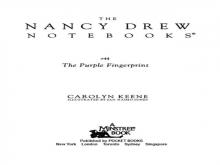 The Purple Fingerprint
The Purple Fingerprint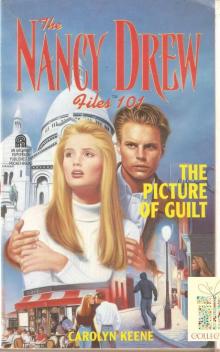 The Picture of Guilt
The Picture of Guilt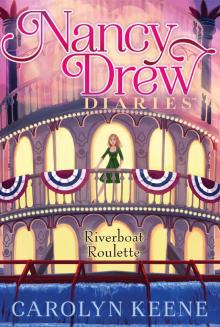 Riverboat Roulette
Riverboat Roulette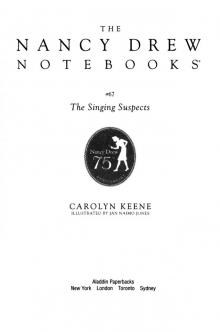 The Singing Suspects
The Singing Suspects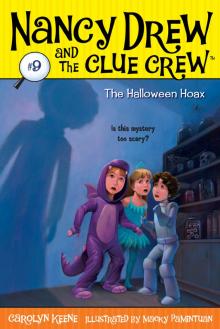 The Halloween Hoax
The Halloween Hoax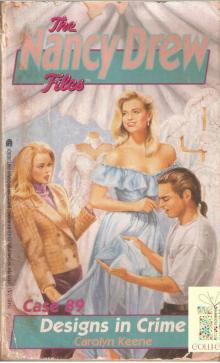 089 Designs in Crime
089 Designs in Crime The Hidden Treasures
The Hidden Treasures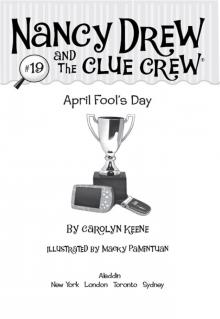 April Fool's Day
April Fool's Day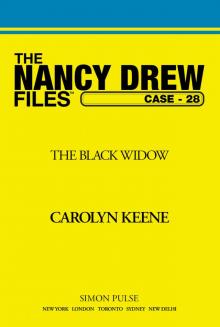 The Black Widow
The Black Widow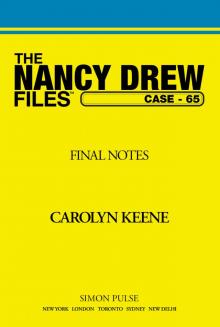 Final Notes
Final Notes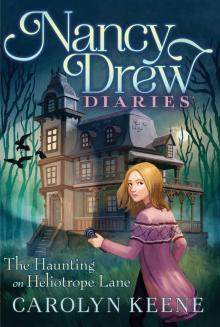 The Haunting on Heliotrope Lane
The Haunting on Heliotrope Lane The Runaway Bride
The Runaway Bride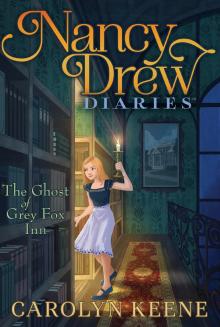 The Ghost of Grey Fox Inn
The Ghost of Grey Fox Inn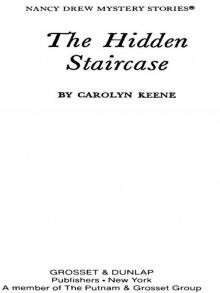 The Hidden Staircase
The Hidden Staircase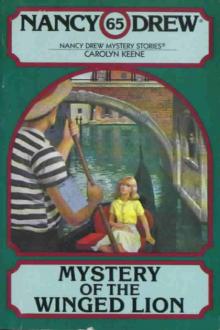 Mystery of the Winged Lion
Mystery of the Winged Lion Over the Edge
Over the Edge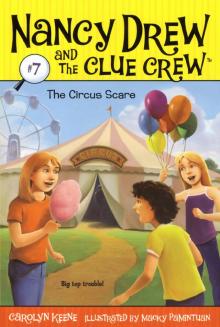 The Circus Scare
The Circus Scare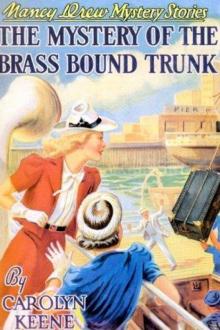 The Mystery of the Brass-Bound Trunk
The Mystery of the Brass-Bound Trunk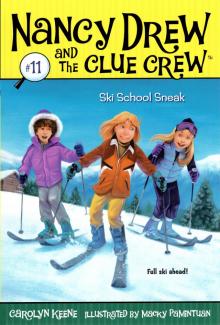 Ski School Sneak
Ski School Sneak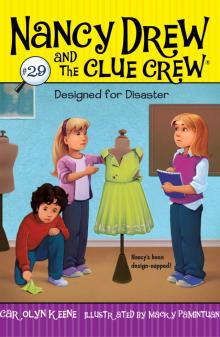 Designed for Disaster
Designed for Disaster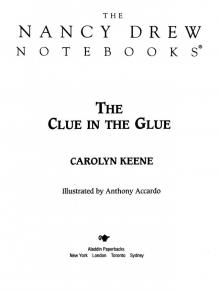 The Clue in the Glue
The Clue in the Glue Cold as Ice
Cold as Ice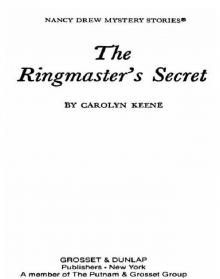 The Ringmaster's Secret
The Ringmaster's Secret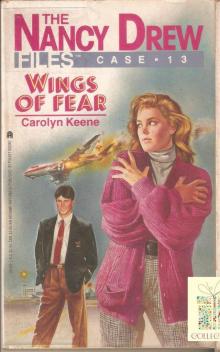 013 Wings of Fear
013 Wings of Fear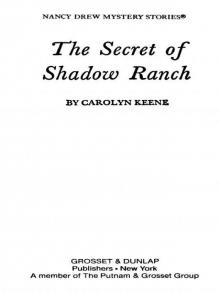 The Secret of Shadow Ranch
The Secret of Shadow Ranch Not Nice on Ice
Not Nice on Ice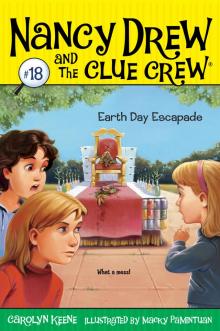 Earth Day Escapade
Earth Day Escapade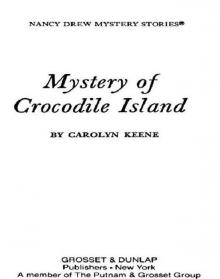 Mystery of Crocodile Island
Mystery of Crocodile Island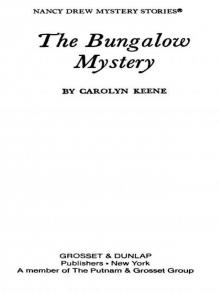 The Bungalow Mystery
The Bungalow Mystery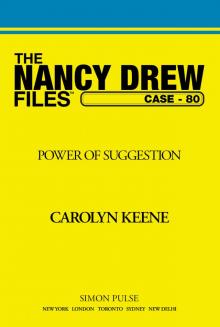 Power of Suggestion
Power of Suggestion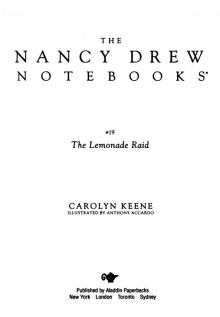 The Lemonade Raid
The Lemonade Raid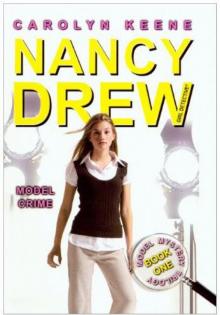 Model Crime
Model Crime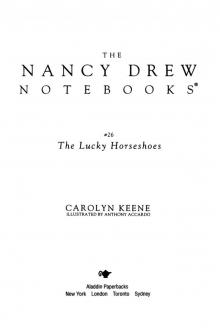 The Lucky Horseshoes
The Lucky Horseshoes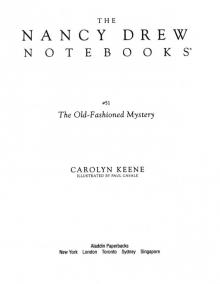 The Secret of the Old Clock
The Secret of the Old Clock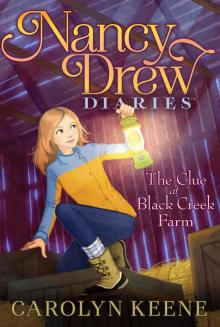 The Clue at Black Creek Farm
The Clue at Black Creek Farm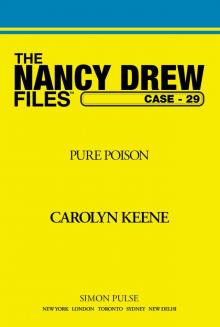 Pure Poison
Pure Poison Nobody's Business
Nobody's Business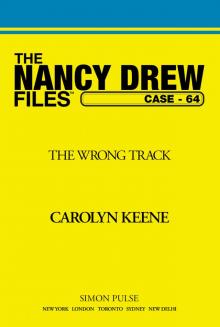 Wrong Track
Wrong Track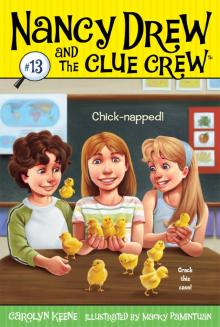 Chick-Napped!
Chick-Napped!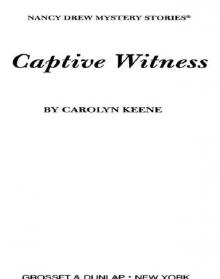 Captive Witness
Captive Witness If Looks Could Kill
If Looks Could Kill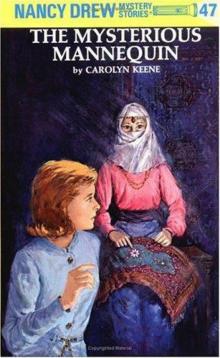 The Mysterious Mannequin
The Mysterious Mannequin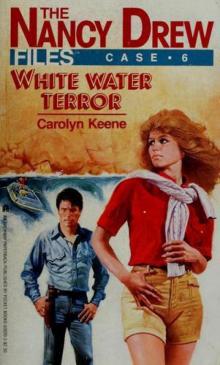 White Water Terror
White Water Terror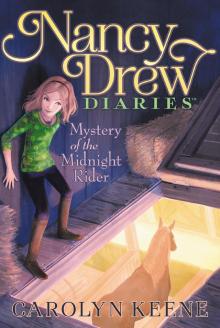 Mystery of the Midnight Rider
Mystery of the Midnight Rider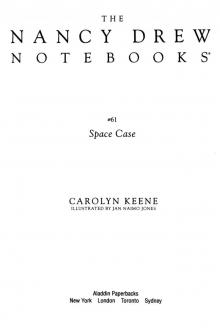 Space Case
Space Case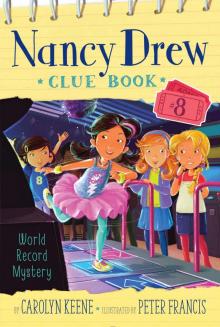 World Record Mystery
World Record Mystery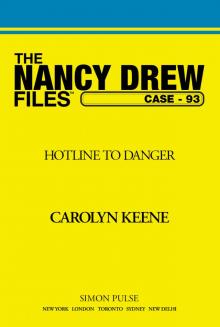 Hotline to Danger
Hotline to Danger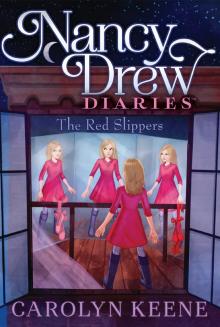 The Red Slippers
The Red Slippers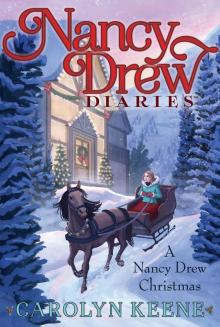 A Crime for Christmas
A Crime for Christmas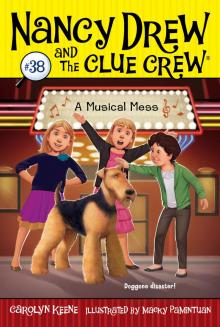 A Musical Mess
A Musical Mess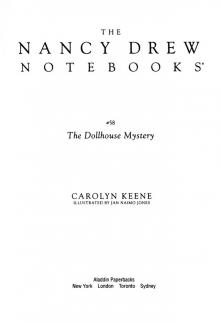 The Dollhouse Mystery
The Dollhouse Mystery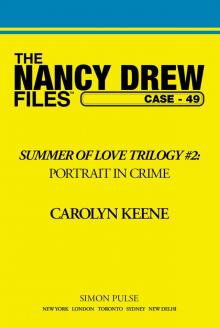 Portrait in Crime
Portrait in Crime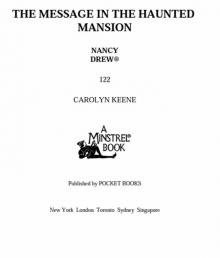 The Message in the Haunted Mansion
The Message in the Haunted Mansion Playing With Fire
Playing With Fire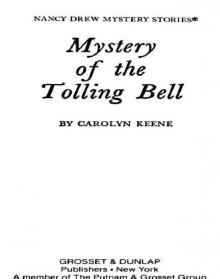 Mystery of the Tolling Bell
Mystery of the Tolling Bell Cutting Edge
Cutting Edge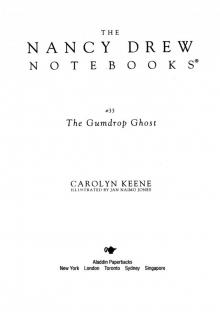 The Gumdrop Ghost
The Gumdrop Ghost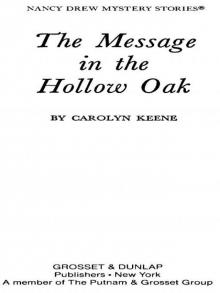 The Message in the Hollow Oak
The Message in the Hollow Oak Trial by Fire
Trial by Fire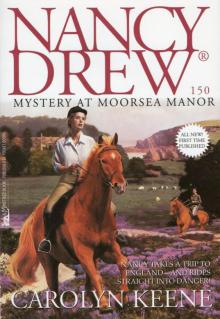 Mystery at Moorsea Manor
Mystery at Moorsea Manor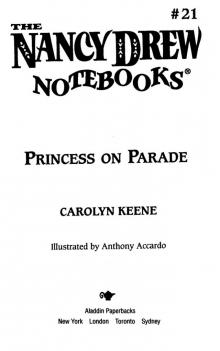 Princess on Parade
Princess on Parade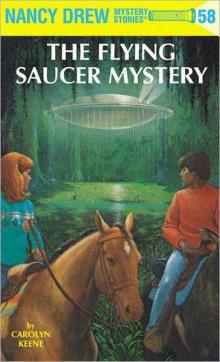 The Flying Saucer Mystery
The Flying Saucer Mystery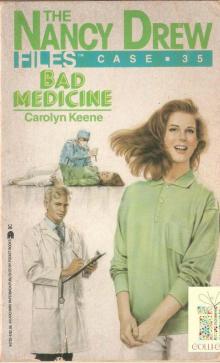 035 Bad Medicine
035 Bad Medicine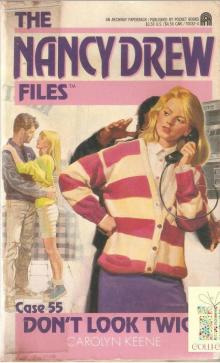 055 Don't Look Twice
055 Don't Look Twice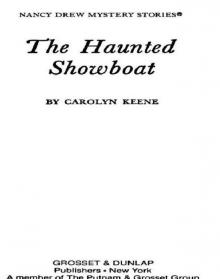 The Haunted Showboat
The Haunted Showboat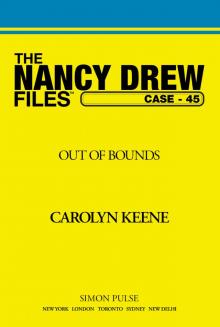 Out of Bounds
Out of Bounds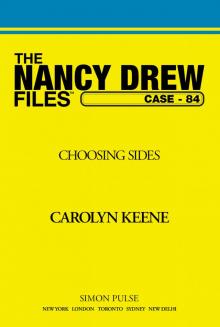 Choosing Sides
Choosing Sides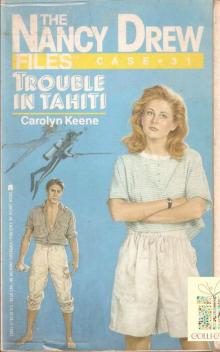 031 Trouble in Tahiti
031 Trouble in Tahiti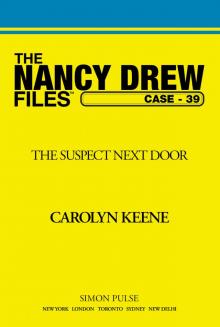 The Suspect Next Door
The Suspect Next Door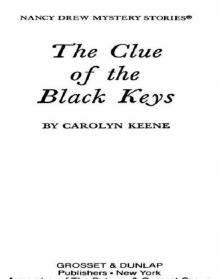 The Clue of the Black Keys
The Clue of the Black Keys The Secret Santa
The Secret Santa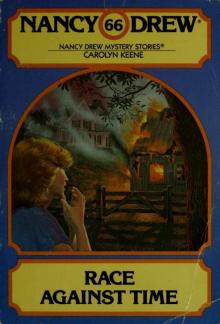 Race Against Time
Race Against Time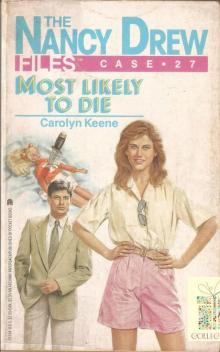 027 Most Likely to Die
027 Most Likely to Die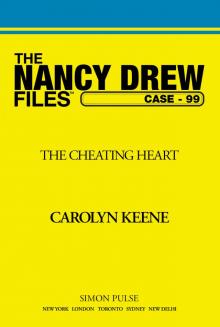 The Cheating Heart
The Cheating Heart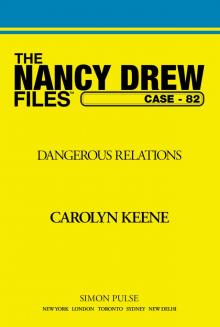 Dangerous Relations
Dangerous Relations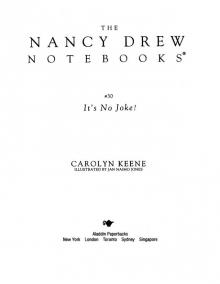 It's No Joke!
It's No Joke!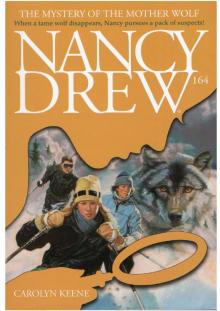 The Mystery of the Mother Wolf
The Mystery of the Mother Wolf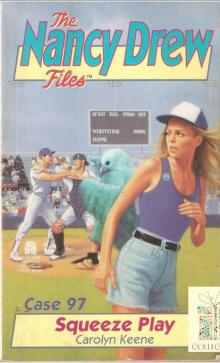 097 Squeeze Play
097 Squeeze Play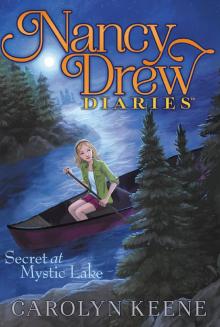 Secret at Mystic Lake
Secret at Mystic Lake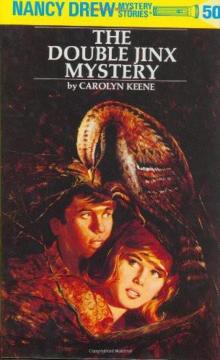 The Double Jinx Mystery
The Double Jinx Mystery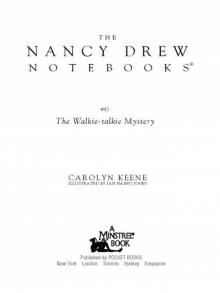 The Walkie Talkie Mystery
The Walkie Talkie Mystery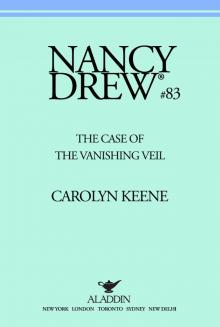 The Case of the Vanishing Veil
The Case of the Vanishing Veil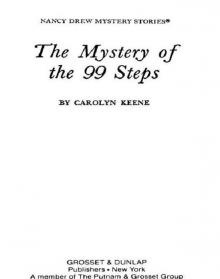 The Mystery of the 99 Steps
The Mystery of the 99 Steps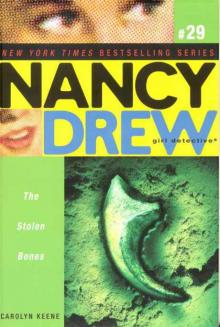 The Stolen Bones
The Stolen Bones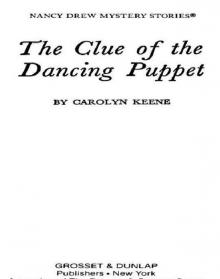 The Clue of the Dancing Puppet
The Clue of the Dancing Puppet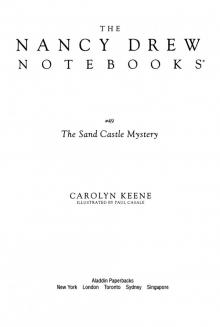 The Sand Castle Mystery
The Sand Castle Mystery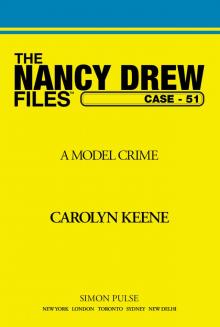 A Model Crime
A Model Crime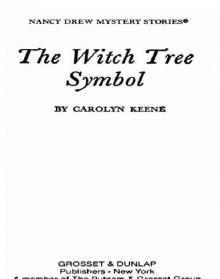 The Witch Tree Symbol
The Witch Tree Symbol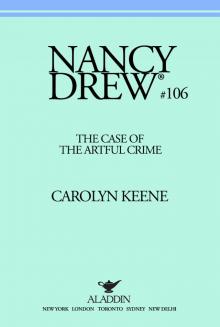 The Case of the Artful Crime
The Case of the Artful Crime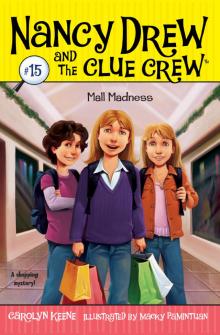 Mall Madness
Mall Madness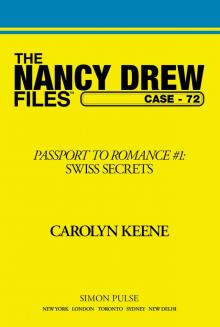 Swiss Secrets
Swiss Secrets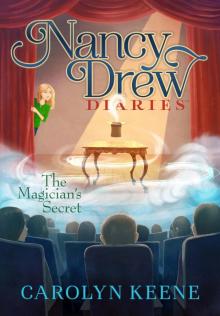 The Magician's Secret
The Magician's Secret Tall, Dark and Deadly
Tall, Dark and Deadly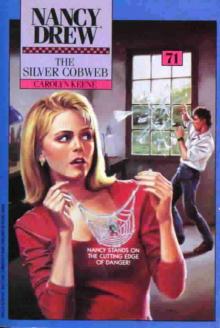 The Silver Cobweb
The Silver Cobweb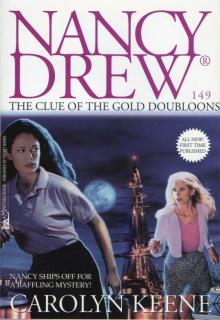 The Clue of the Gold Doubloons
The Clue of the Gold Doubloons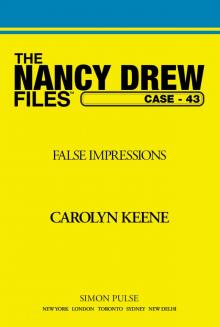 False Impressions
False Impressions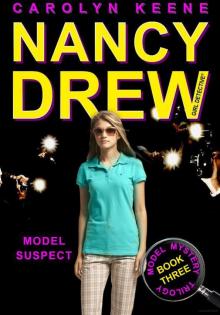 Model Suspect
Model Suspect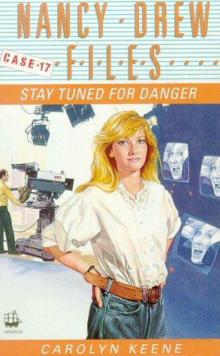 Stay Tuned for Danger
Stay Tuned for Danger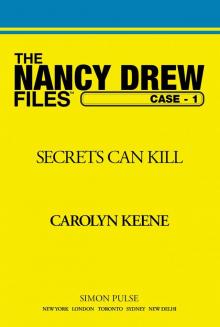 Secrets Can Kill
Secrets Can Kill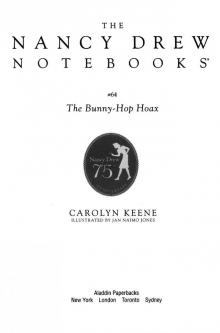 The Bunny-Hop Hoax
The Bunny-Hop Hoax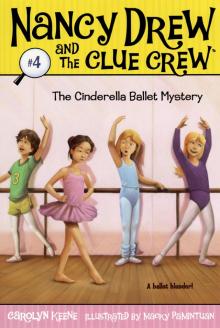 The Cinderella Ballet Mystery
The Cinderella Ballet Mystery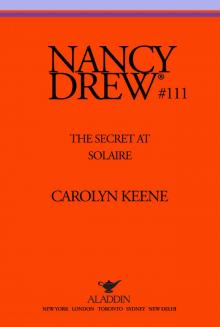 The Secret at Solaire
The Secret at Solaire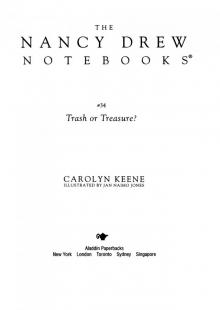 Trash or Treasure?
Trash or Treasure?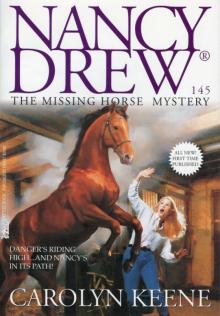 The Missing Horse Mystery
The Missing Horse Mystery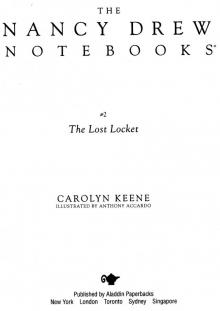 The Lost Locket
The Lost Locket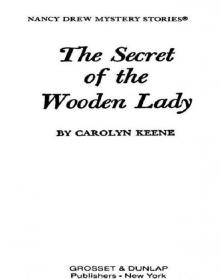 The Secret of the Wooden Lady
The Secret of the Wooden Lady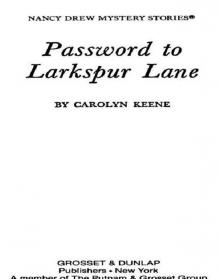 Password to Larkspur Lane
Password to Larkspur Lane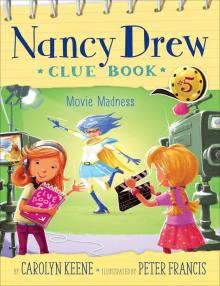 Movie Madness
Movie Madness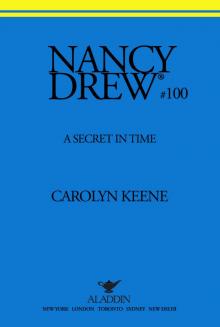 A Secret in Time
A Secret in Time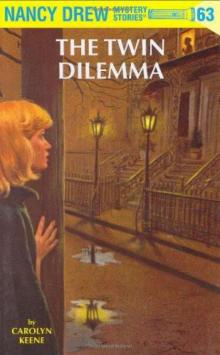 The Twin Dilemma
The Twin Dilemma Candy Is Dandy
Candy Is Dandy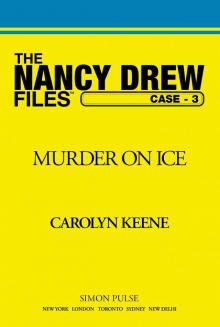 Murder on Ice
Murder on Ice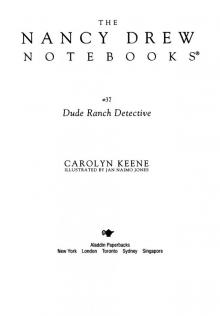 Dude Ranch Detective
Dude Ranch Detective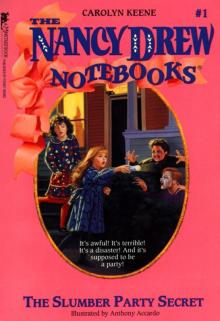 The Slumber Party Secret
The Slumber Party Secret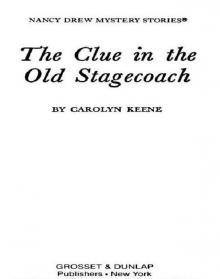 The Clue in the Old Stagecoach
The Clue in the Old Stagecoach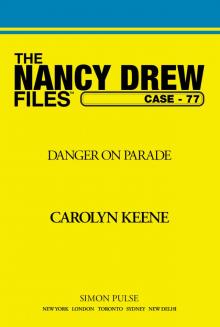 Danger on Parade
Danger on Parade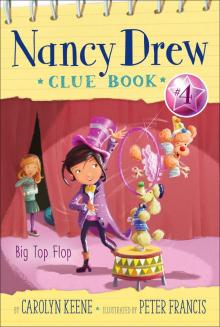 Big Top Flop
Big Top Flop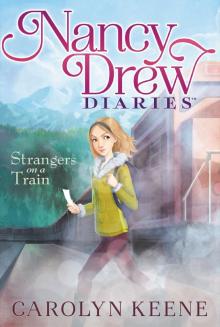 Strangers on a Train
Strangers on a Train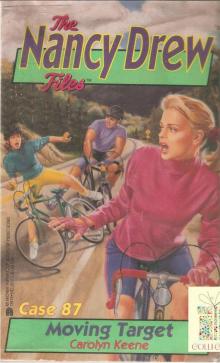 087 Moving Target
087 Moving Target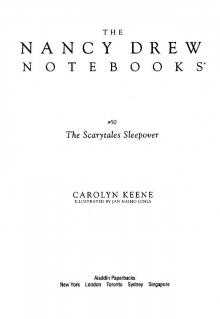 The Scarytales Sleepover
The Scarytales Sleepover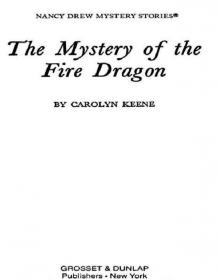 The Mystery of the Fire Dragon
The Mystery of the Fire Dragon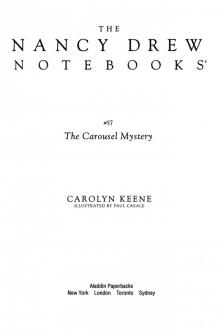 The Carousel Mystery
The Carousel Mystery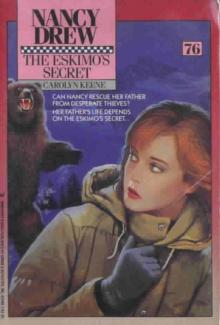 The Eskimo's Secret
The Eskimo's Secret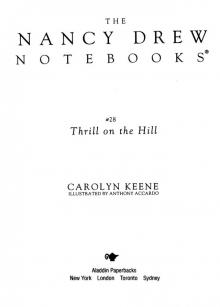 Thrill on the Hill
Thrill on the Hill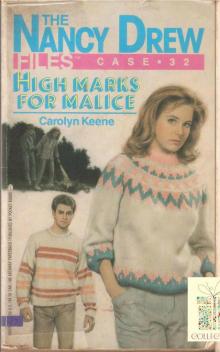 032 High Marks for Malice
032 High Marks for Malice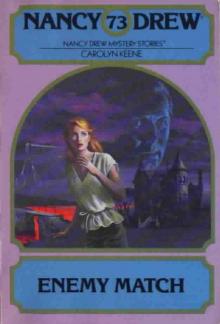 Enemy Match
Enemy Match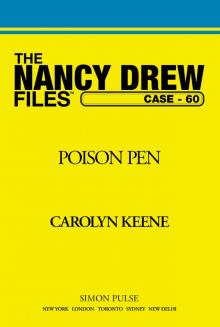 Poison Pen
Poison Pen Lights, Camera . . . Cats!
Lights, Camera . . . Cats!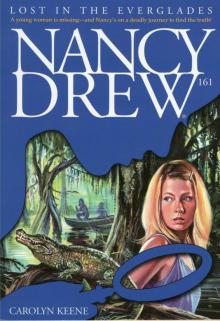 Lost in the Everglades
Lost in the Everglades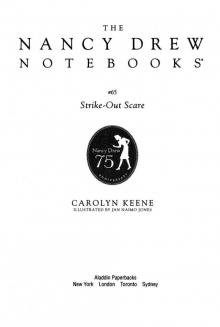 Strike-Out Scare
Strike-Out Scare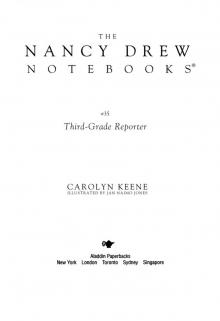 Third-Grade Reporter
Third-Grade Reporter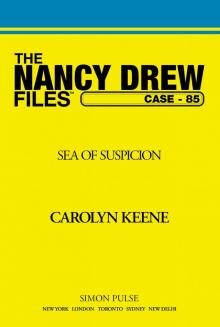 Sea of Suspicion
Sea of Suspicion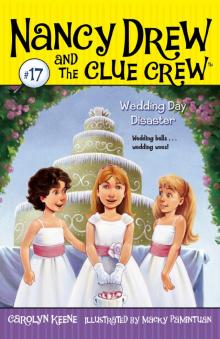 Wedding Day Disaster
Wedding Day Disaster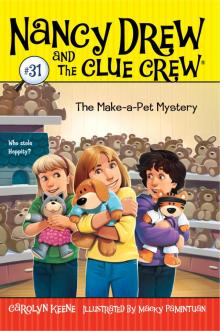 The Make-A-Pet Mystery
The Make-A-Pet Mystery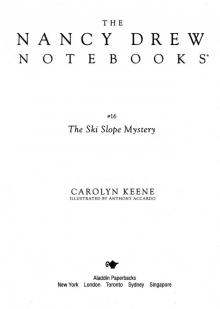 The Ski Slope Mystery
The Ski Slope Mystery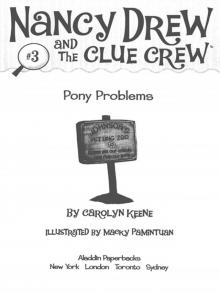 Pony Problems
Pony Problems Candy Kingdom Chaos
Candy Kingdom Chaos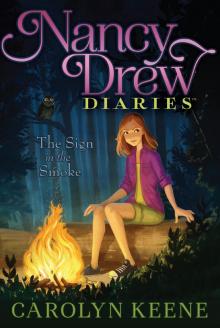 The Sign in the Smoke
The Sign in the Smoke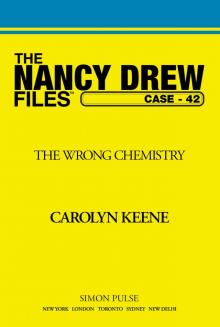 The Wrong Chemistry
The Wrong Chemistry Circus Act
Circus Act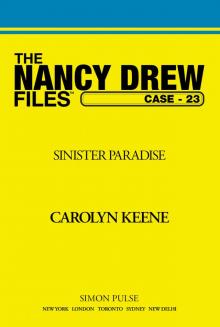 Sinister Paradise
Sinister Paradise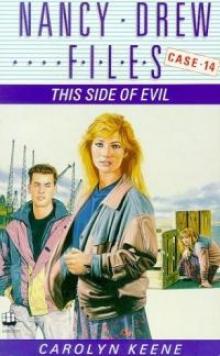 This Side of Evil
This Side of Evil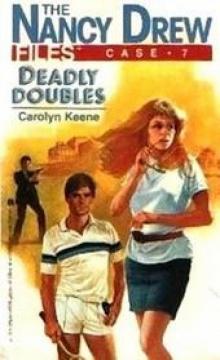 Deadly Doubles
Deadly Doubles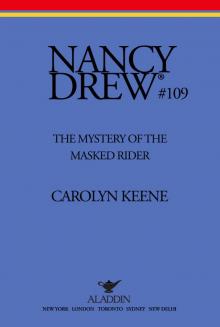 The Mystery of the Masked Rider
The Mystery of the Masked Rider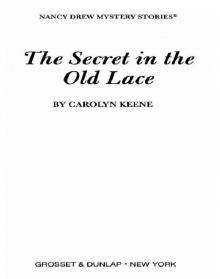 The Secret in the Old Lace
The Secret in the Old Lace The Pen Pal Puzzle
The Pen Pal Puzzle Without a Trace
Without a Trace Whose Pet Is Best?
Whose Pet Is Best?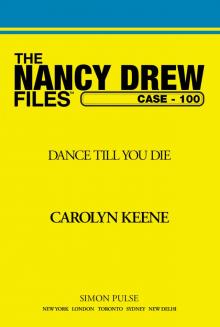 Dance Till You Die
Dance Till You Die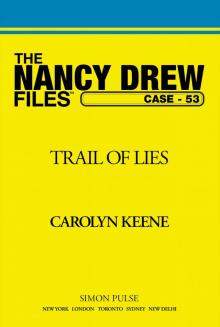 Trail of Lies
Trail of Lies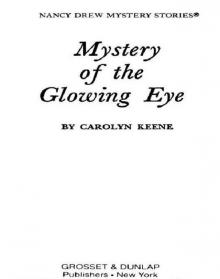 Mystery of the Glowing Eye
Mystery of the Glowing Eye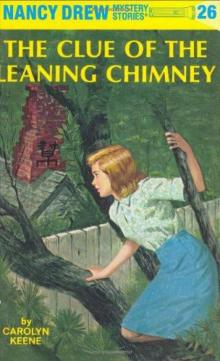 The Clue of the Leaning Chimney
The Clue of the Leaning Chimney The Crook Who Took the Book
The Crook Who Took the Book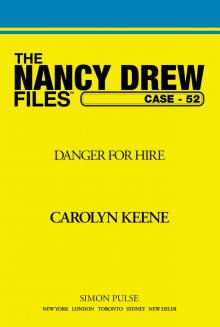 Danger for Hire
Danger for Hire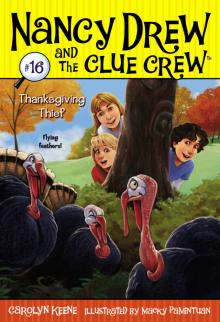 Thanksgiving Thief
Thanksgiving Thief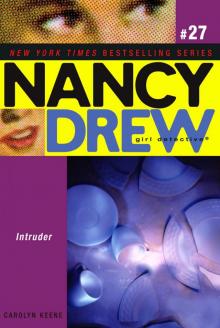 Intruder!
Intruder!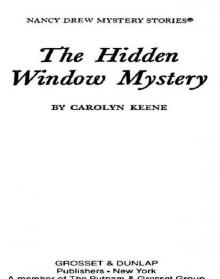 The Hidden Window Mystery
The Hidden Window Mystery Win, Place or Die
Win, Place or Die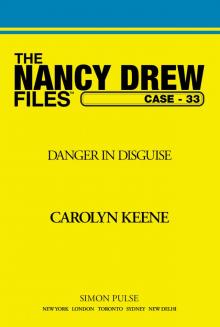 Danger in Disguise
Danger in Disguise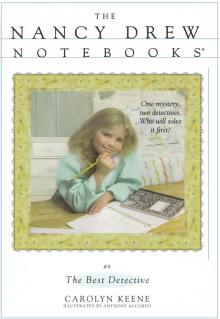 The Best Detective
The Best Detective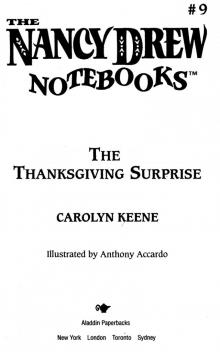 The Thanksgiving Surprise
The Thanksgiving Surprise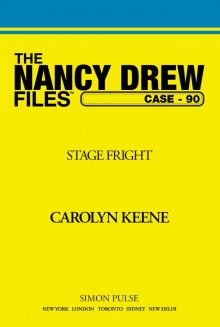 Stage Fright
Stage Fright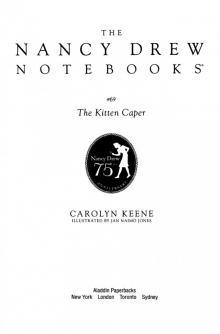 The Kitten Caper
The Kitten Caper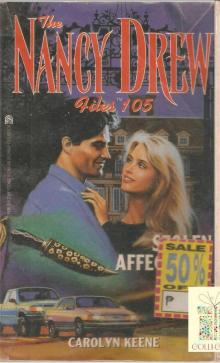 Stolen Affections
Stolen Affections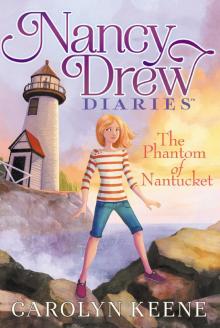 The Phantom of Nantucket
The Phantom of Nantucket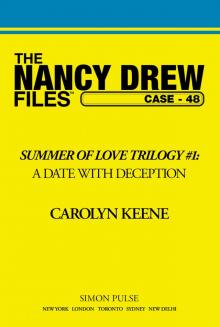 Date With Deception
Date With Deception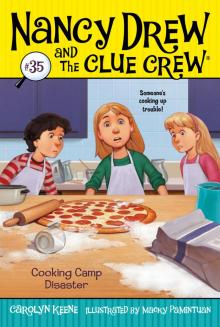 Cooking Camp Disaster
Cooking Camp Disaster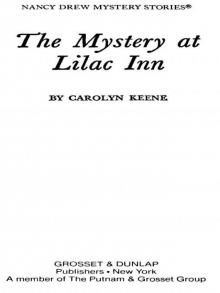 The Mystery at Lilac Inn
The Mystery at Lilac Inn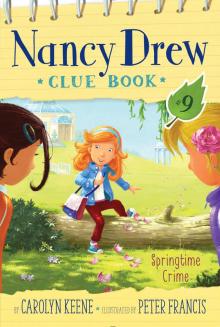 Springtime Crime
Springtime Crime Action!
Action! Into Thin Air
Into Thin Air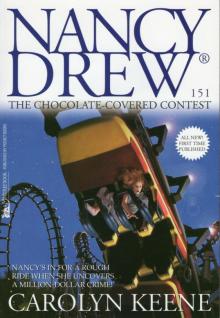 The Chocolate-Covered Contest
The Chocolate-Covered Contest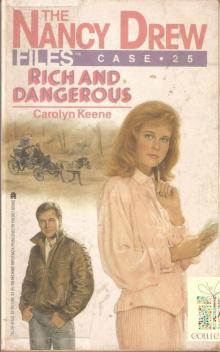 025 Rich and Dangerous
025 Rich and Dangerous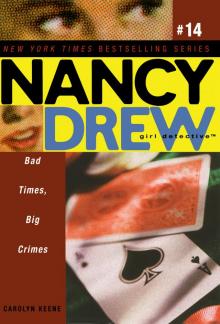 Bad Times, Big Crimes
Bad Times, Big Crimes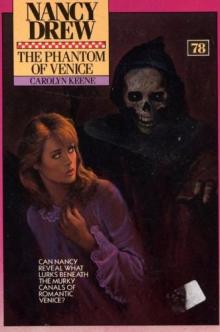 078 The Phantom Of Venice
078 The Phantom Of Venice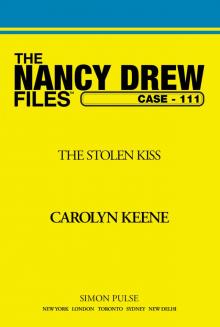 The Stolen Kiss
The Stolen Kiss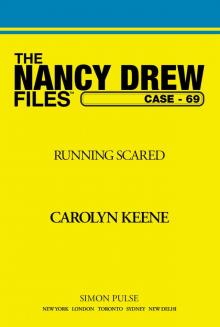 Running Scared
Running Scared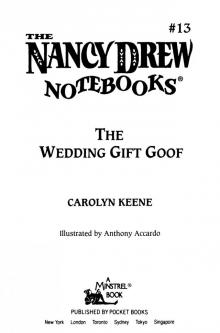 The Wedding Gift Goof
The Wedding Gift Goof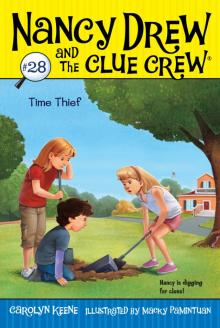 Time Thief
Time Thief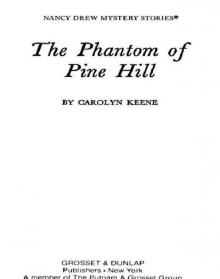 The Phantom of Pine Hill
The Phantom of Pine Hill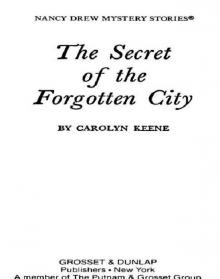 The Secret of the Forgotten City
The Secret of the Forgotten City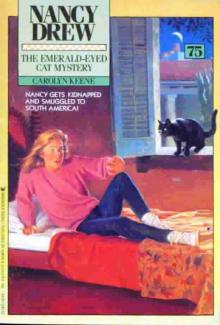 The Emerald-Eyed Cat Mystery
The Emerald-Eyed Cat Mystery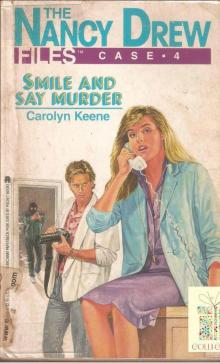 004 Smile and Say Murder
004 Smile and Say Murder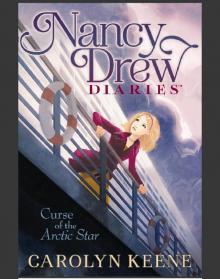 Curse of the Arctic Star
Curse of the Arctic Star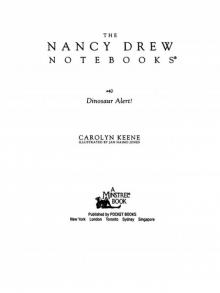 Dinosaur Alert!
Dinosaur Alert!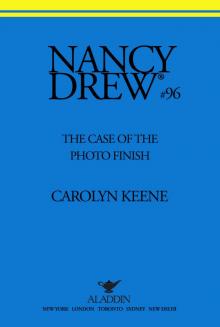 The Case of the Photo Finish
The Case of the Photo Finish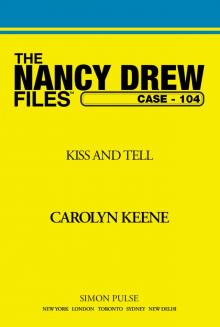 Kiss and Tell
Kiss and Tell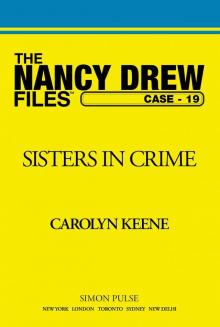 Sisters in Crime
Sisters in Crime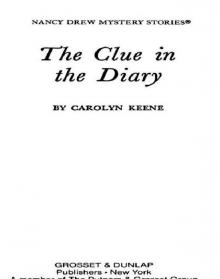 The Clue in the Diary
The Clue in the Diary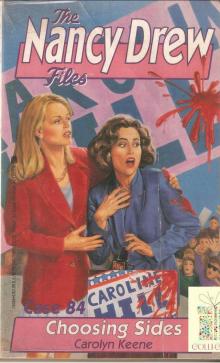 084 Choosing Sides
084 Choosing Sides Haunting of Horse Island
Haunting of Horse Island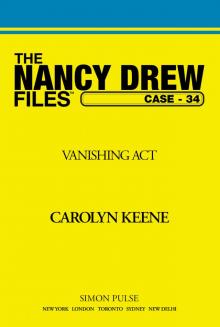 Vanishing Act
Vanishing Act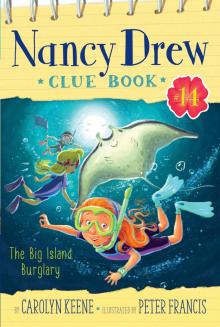 The Big Island Burglary
The Big Island Burglary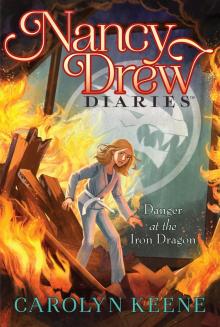 Danger at the Iron Dragon
Danger at the Iron Dragon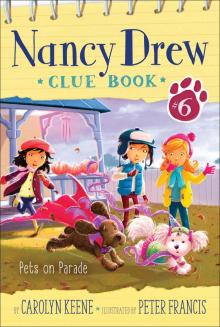 Pets on Parade
Pets on Parade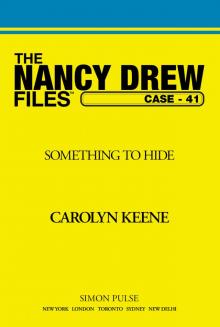 Something to Hide
Something to Hide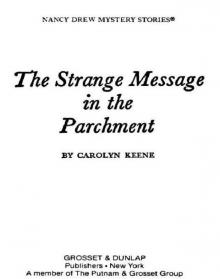 The Strange Message in the Parchment
The Strange Message in the Parchment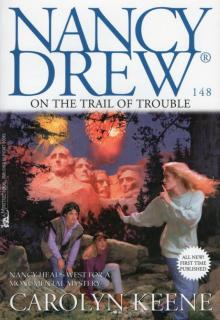 On the Trail of Trouble
On the Trail of Trouble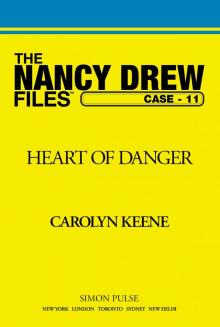 Heart of Danger
Heart of Danger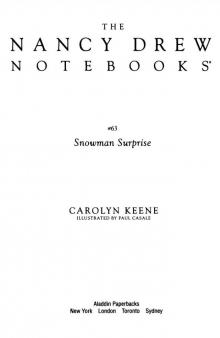 The Snowman Surprise
The Snowman Surprise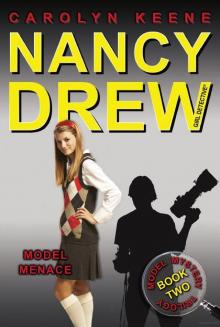 Model Menace
Model Menace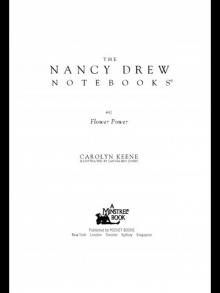 Flower Power
Flower Power The Great Goat Gaffe
The Great Goat Gaffe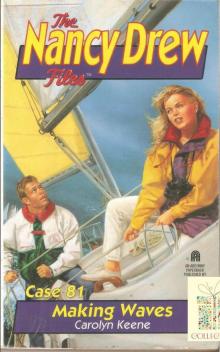 081 Making Waves
081 Making Waves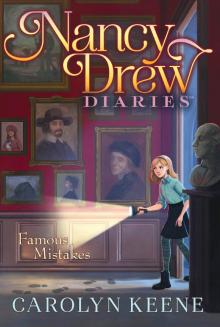 Famous Mistakes
Famous Mistakes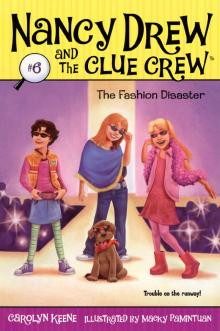 The Fashion Disaster
The Fashion Disaster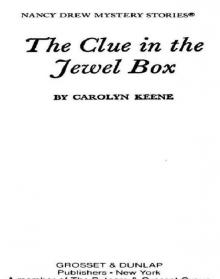 The Clue in the Jewel Box
The Clue in the Jewel Box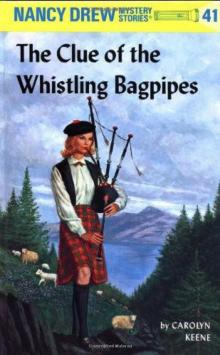 The Clue of the Whistling Bagpipes
The Clue of the Whistling Bagpipes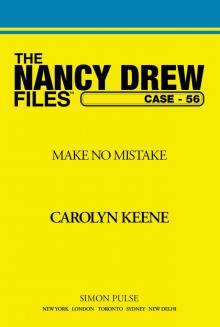 Make No Mistake
Make No Mistake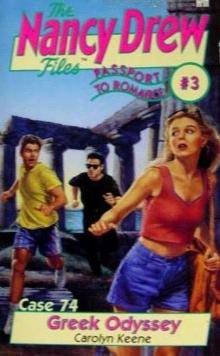 Greek Odyssey
Greek Odyssey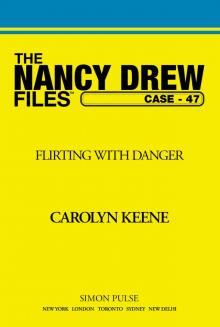 Flirting With Danger
Flirting With Danger Double Take
Double Take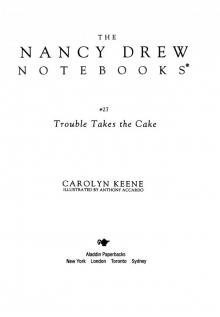 Trouble Takes the Cake
Trouble Takes the Cake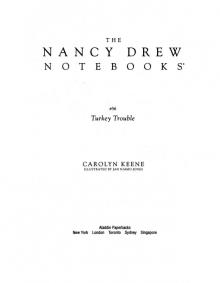 Turkey Trouble
Turkey Trouble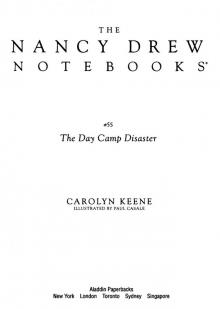 The Day Camp Disaster
The Day Camp Disaster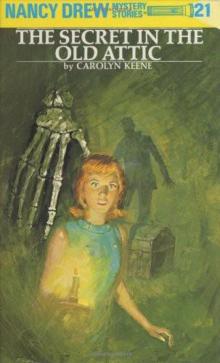 The Secret in the Old Attic
The Secret in the Old Attic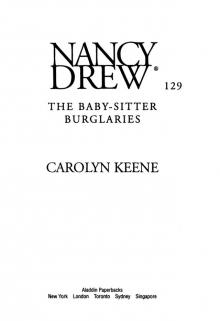 The Baby-Sitter Burglaries
The Baby-Sitter Burglaries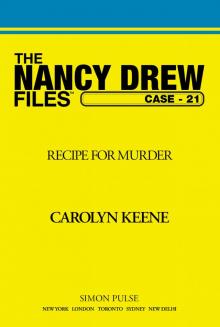 Recipe for Murder
Recipe for Murder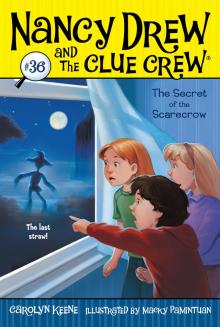 The Secret of the Scarecrow
The Secret of the Scarecrow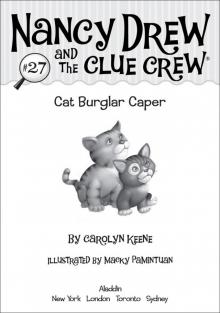 Cat Burglar Caper
Cat Burglar Caper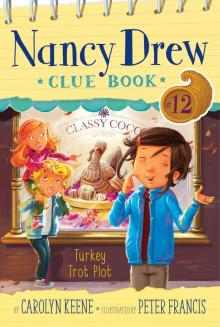 Turkey Trot Plot
Turkey Trot Plot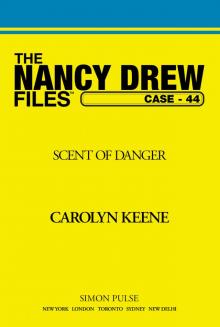 Scent of Danger
Scent of Danger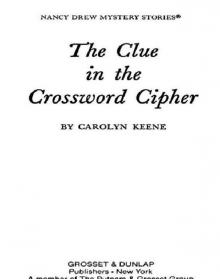 The Clue in the Crossword Cipher
The Clue in the Crossword Cipher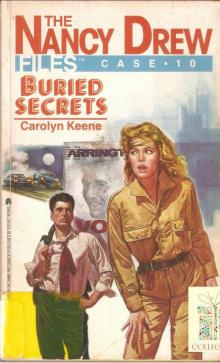 010 Buried Secrets
010 Buried Secrets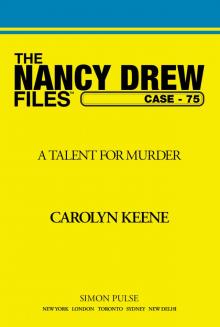 A Talent for Murder
A Talent for Murder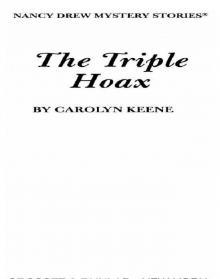 The Triple Hoax
The Triple Hoax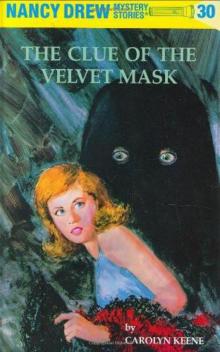 The Clue of the Velvet Mask
The Clue of the Velvet Mask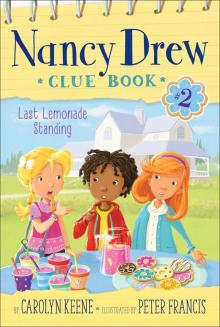 Last Lemonade Standing
Last Lemonade Standing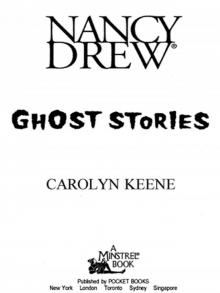 The Ghost of Blackwood Hall
The Ghost of Blackwood Hall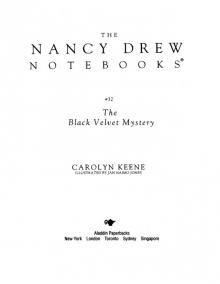 The Black Velvet Mystery
The Black Velvet Mystery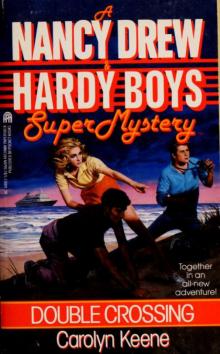 Double Crossing
Double Crossing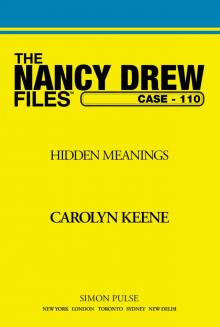 Hidden Meanings
Hidden Meanings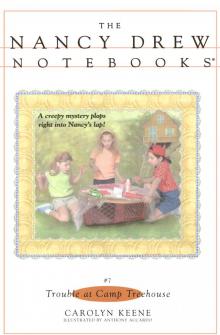 Trouble at Camp Treehouse
Trouble at Camp Treehouse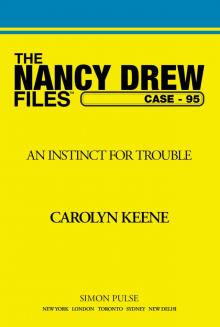 An Instinct for Trouble
An Instinct for Trouble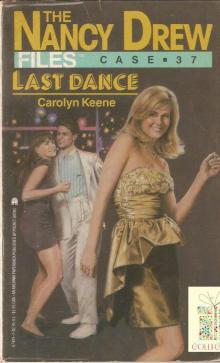 037 Last Dance
037 Last Dance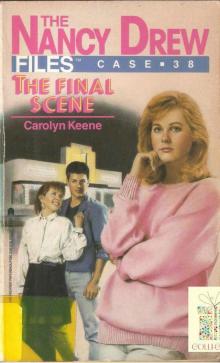 038 The Final Scene
038 The Final Scene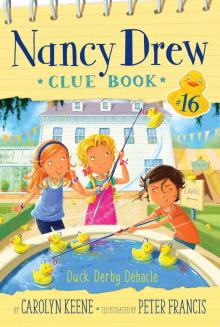 Duck Derby Debacle
Duck Derby Debacle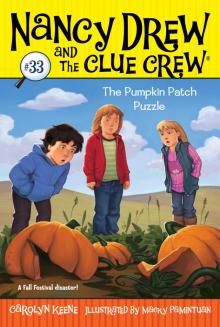 The Pumpkin Patch Puzzle
The Pumpkin Patch Puzzle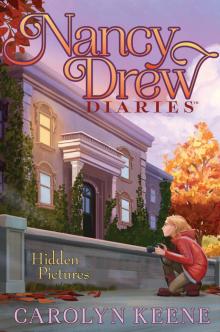 Hidden Pictures
Hidden Pictures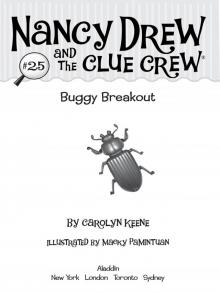 Buggy Breakout
Buggy Breakout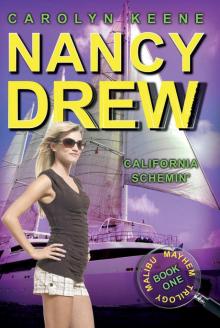 California Schemin'
California Schemin'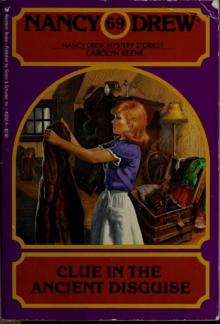 Clue in the Ancient Disguise
Clue in the Ancient Disguise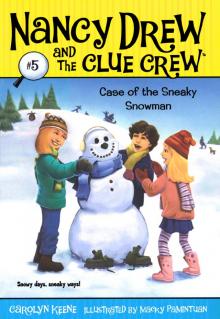 Case of the Sneaky Snowman
Case of the Sneaky Snowman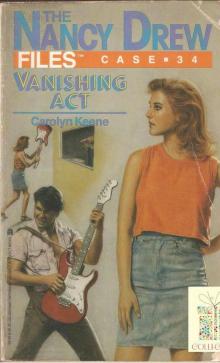 034 Vanishing Act
034 Vanishing Act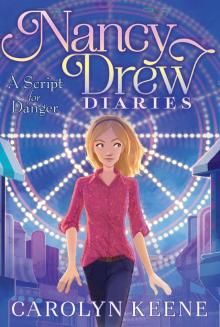 A Script for Danger
A Script for Danger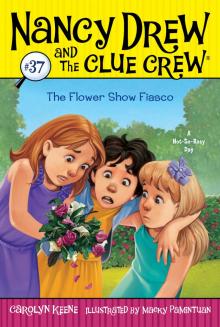 The Flower Show Fiasco
The Flower Show Fiasco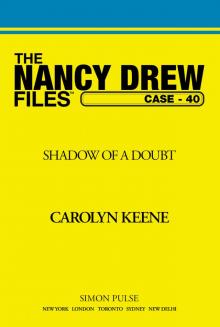 Shadow of a Doubt
Shadow of a Doubt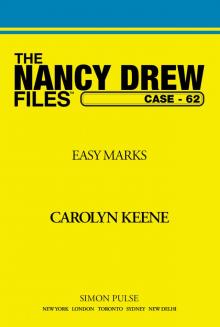 Easy Marks
Easy Marks Alien in the Classroom
Alien in the Classroom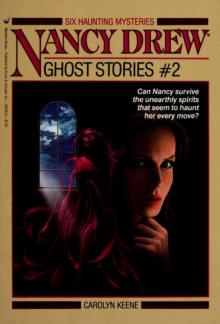 Ghost Stories, #2 (Nancy Drew)
Ghost Stories, #2 (Nancy Drew)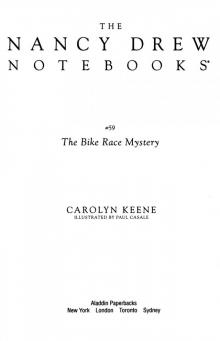 The Bike Race Mystery
The Bike Race Mystery False Pretenses
False Pretenses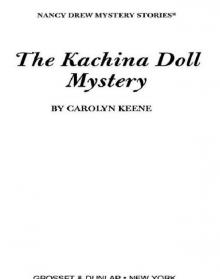 The Kachina Doll Mystery
The Kachina Doll Mystery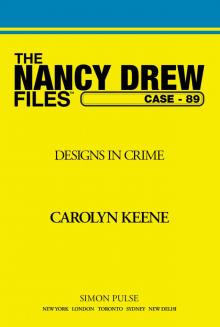 Designs in Crime
Designs in Crime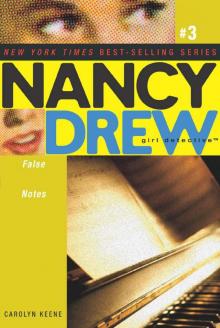 False Notes
False Notes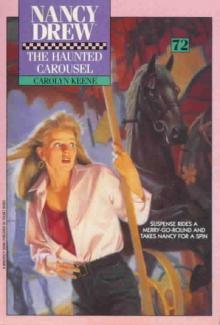 The Haunted Carousel
The Haunted Carousel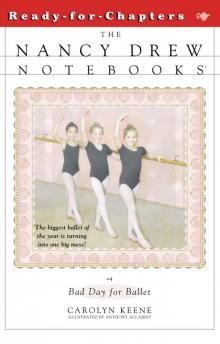 Bad Day for Ballet
Bad Day for Ballet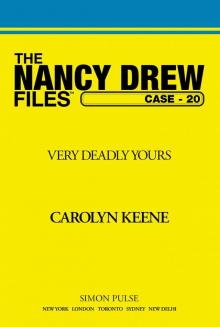 Very Deadly Yours
Very Deadly Yours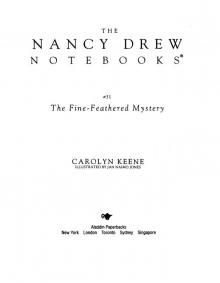 The Fine-Feathered Mystery
The Fine-Feathered Mystery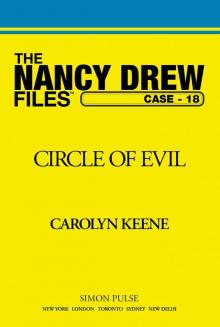 Circle of Evil
Circle of Evil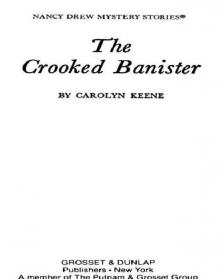 The Crooked Banister
The Crooked Banister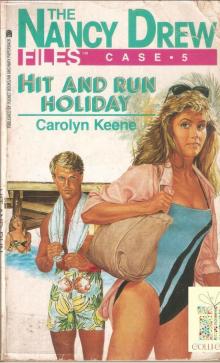 005 Hit and Run Holiday
005 Hit and Run Holiday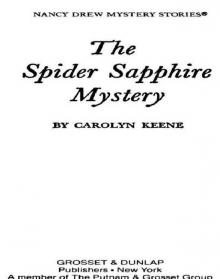 The Spider Sapphire Mystery
The Spider Sapphire Mystery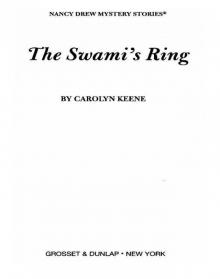 The Swami's Ring
The Swami's Ring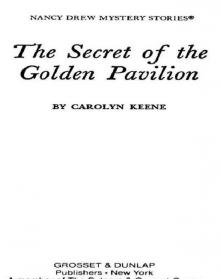 The Secret of the Golden Pavilion
The Secret of the Golden Pavilion Recipe for Trouble
Recipe for Trouble Betrayed by Love
Betrayed by Love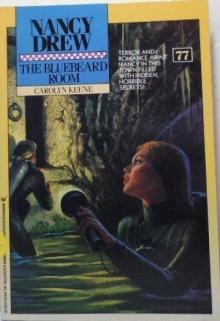 The Bluebeard Room
The Bluebeard Room Sweet Revenge
Sweet Revenge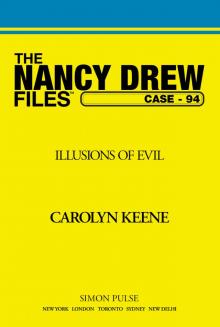 Illusions of Evil
Illusions of Evil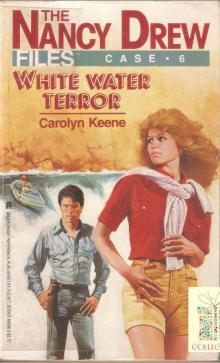 006 White Water Terror
006 White Water Terror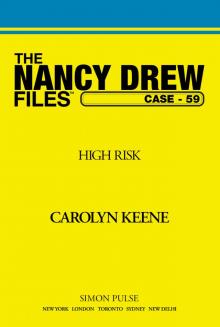 High Risk
High Risk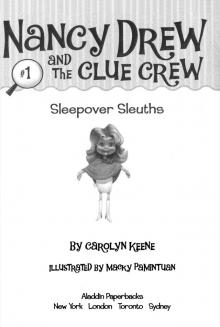 Sleepover Sleuths
Sleepover Sleuths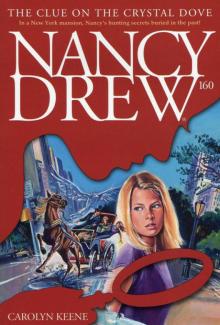 The Clue on the Crystal Dove
The Clue on the Crystal Dove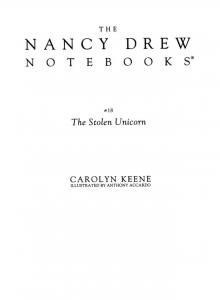 The Stolen Unicorn
The Stolen Unicorn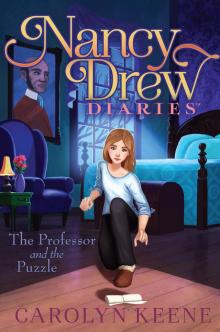 The Professor and the Puzzle
The Professor and the Puzzle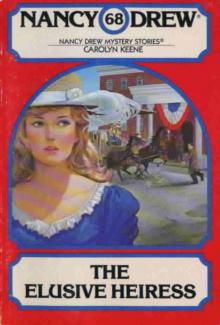 The Elusive Heiress
The Elusive Heiress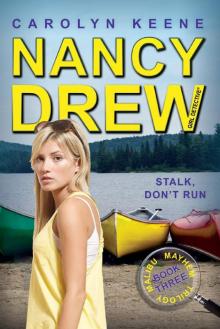 Stalk, Don't Run
Stalk, Don't Run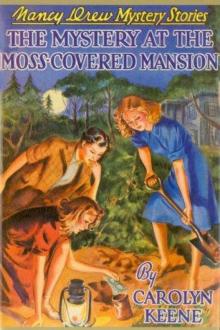 The Mystery at the Moss-Covered Mansion
The Mystery at the Moss-Covered Mansion The Tortoise and the Scare
The Tortoise and the Scare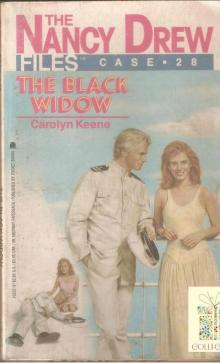 028 The Black Widow
028 The Black Widow Big Worry in Wonderland
Big Worry in Wonderland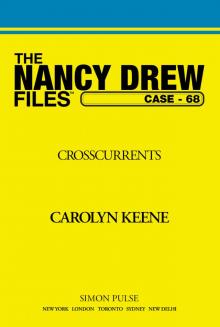 Crosscurrents
Crosscurrents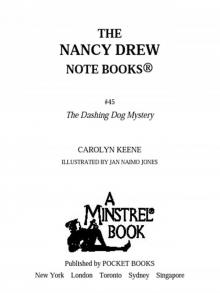 The Dashing Dog Mystery
The Dashing Dog Mystery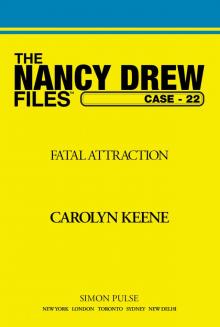 Fatal Attraction
Fatal Attraction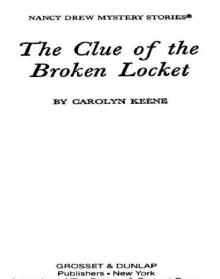 The Clue of the Broken Locket
The Clue of the Broken Locket The Stinky Cheese Surprise
The Stinky Cheese Surprise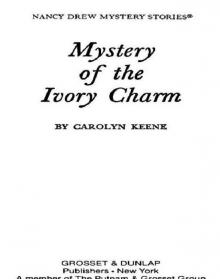 Mystery of the Ivory Charm
Mystery of the Ivory Charm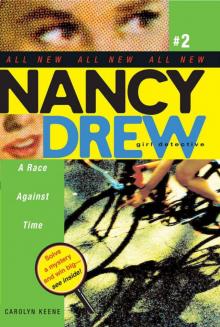 A Race Against Time
A Race Against Time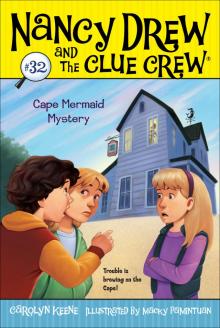 Cape Mermaid Mystery
Cape Mermaid Mystery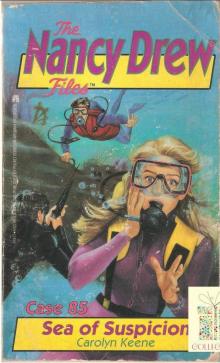 085 Sea of Suspicion
085 Sea of Suspicion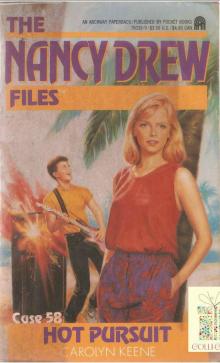 058 Hot Pursuit
058 Hot Pursuit The Secret in the Spooky Woods
The Secret in the Spooky Woods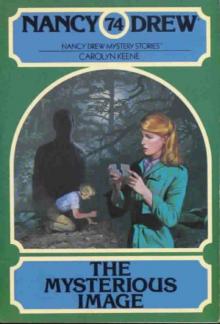 The Mysterious Image
The Mysterious Image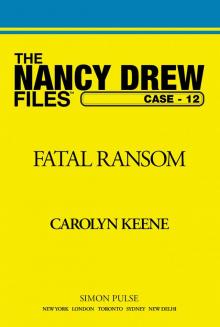 Fatal Ransom
Fatal Ransom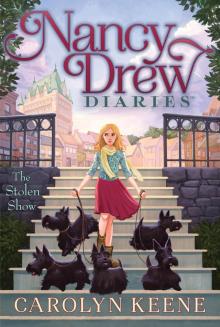 The Stolen Show
The Stolen Show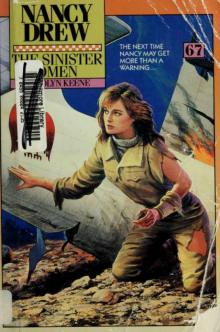 The Sinister Omen
The Sinister Omen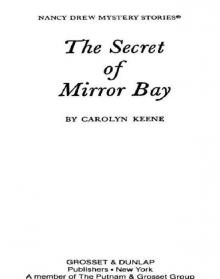 The Secret of Mirror Bay
The Secret of Mirror Bay Rendezvous in Rome
Rendezvous in Rome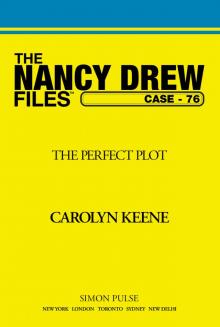 The Perfect Plot
The Perfect Plot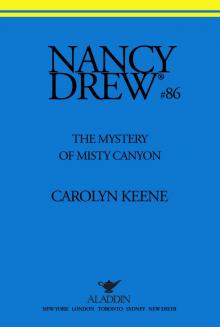 The Mystery of Misty Canyon
The Mystery of Misty Canyon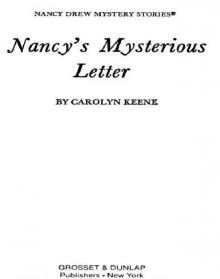 Nancy's Mysterious Letter
Nancy's Mysterious Letter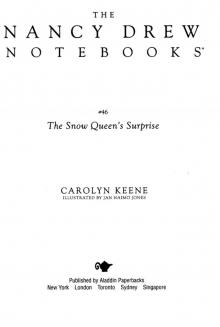 The Snow Queen's Surprise
The Snow Queen's Surprise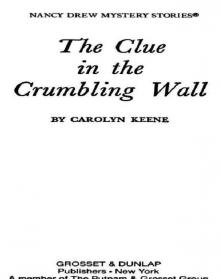 The Clue in the Crumbling Wall
The Clue in the Crumbling Wall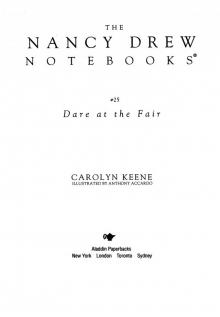 Dare at the Fair
Dare at the Fair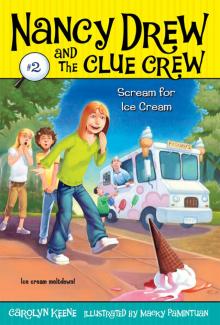 Scream for Ice Cream
Scream for Ice Cream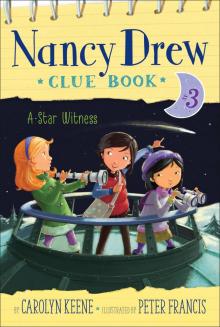 A Star Witness
A Star Witness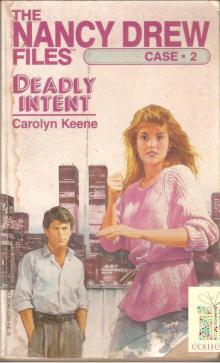 002 Deadly Intent
002 Deadly Intent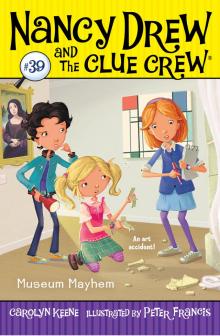 Museum Mayhem
Museum Mayhem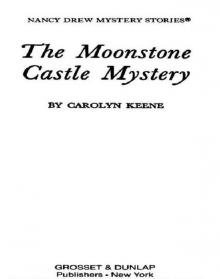 The Moonstone Castle Mystery
The Moonstone Castle Mystery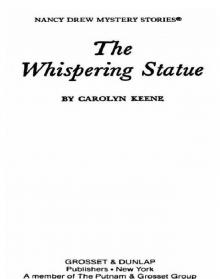 The Whispering Statue
The Whispering Statue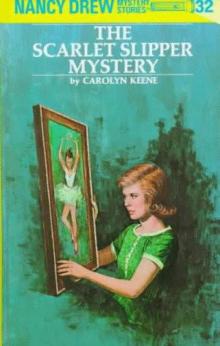 The Scarlet Slipper Mystery
The Scarlet Slipper Mystery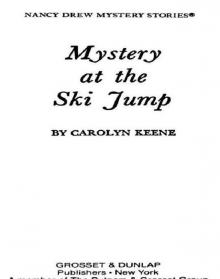 Mystery at the Ski Jump
Mystery at the Ski Jump Hot Pursuit
Hot Pursuit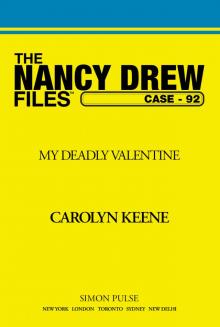 My Deadly Valentine
My Deadly Valentine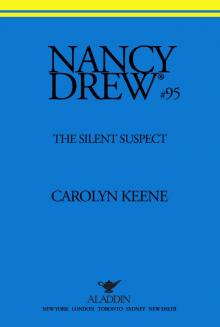 The Silent Suspect
The Silent Suspect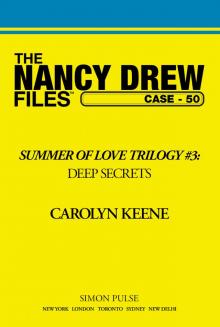 Deep Secrets
Deep Secrets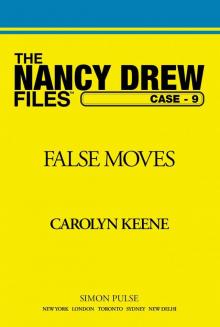 False Moves
False Moves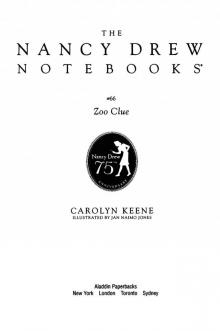 The Zoo Crew
The Zoo Crew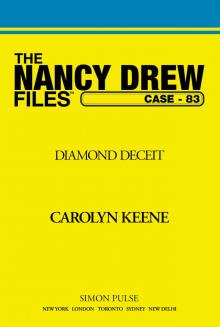 Diamond Deceit
Diamond Deceit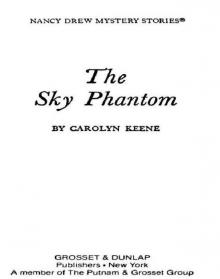 The Sky Phantom
The Sky Phantom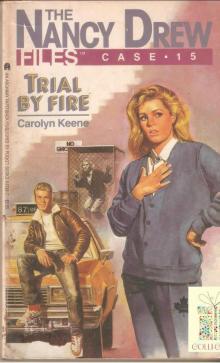 015 Trial by Fire
015 Trial by Fire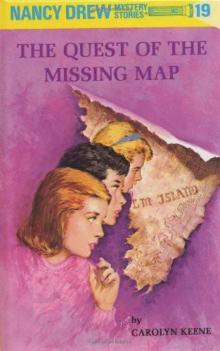 The Quest of the Missing Map
The Quest of the Missing Map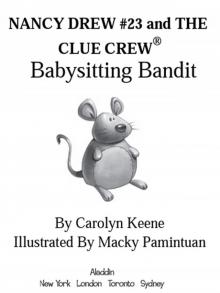 Babysitting Bandit
Babysitting Bandit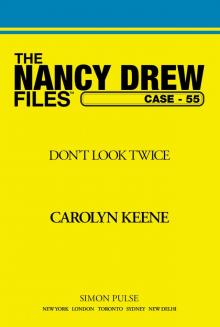 Don't Look Twice
Don't Look Twice Never Say Die
Never Say Die The Soccer Shoe Clue
The Soccer Shoe Clue Pool Party Puzzler
Pool Party Puzzler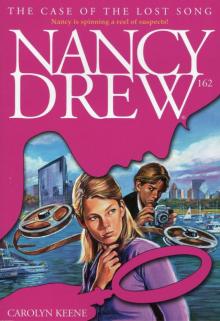 The Case of the Lost Song
The Case of the Lost Song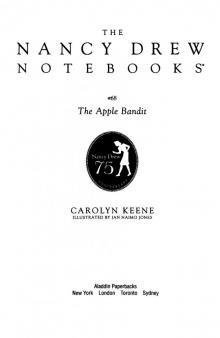 The Apple Bandit
The Apple Bandit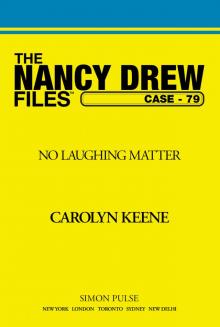 No Laughing Matter
No Laughing Matter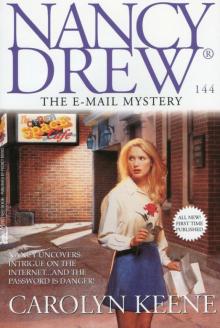 The Thirteenth Pearl
The Thirteenth Pearl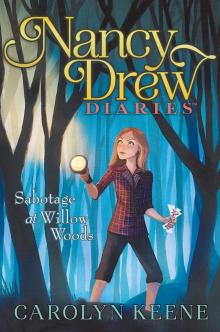 Sabotage at Willow Woods
Sabotage at Willow Woods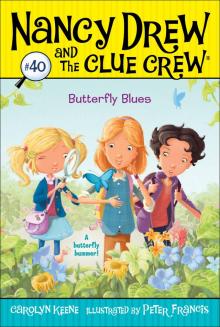 Butterfly Blues
Butterfly Blues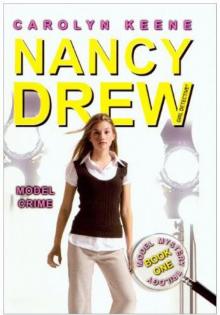 Model Crime 1
Model Crime 1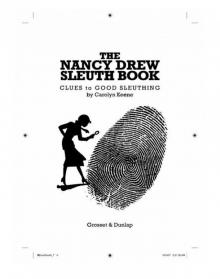 The Nancy Drew Sleuth Book
The Nancy Drew Sleuth Book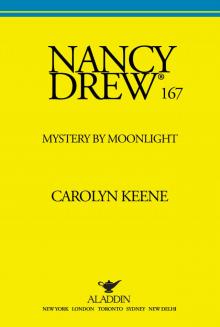 Mystery by Moonlight
Mystery by Moonlight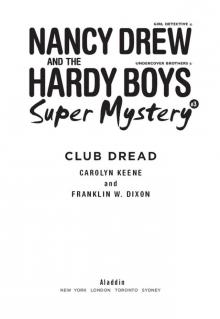 Club Dread
Club Dread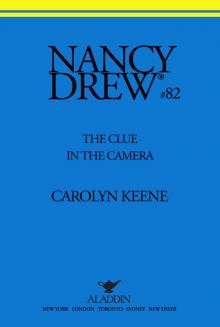 The Clue in the Camera
The Clue in the Camera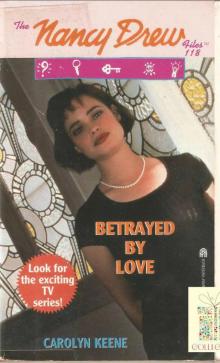 118 Betrayed By Love
118 Betrayed By Love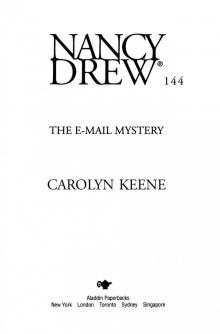 The E-Mail Mystery (Nancy Drew Book 144)
The E-Mail Mystery (Nancy Drew Book 144)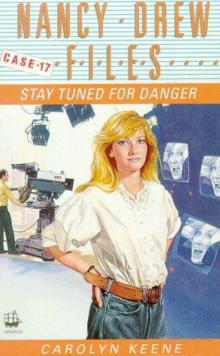 Stay Tuned for Danger: Circle of Evil
Stay Tuned for Danger: Circle of Evil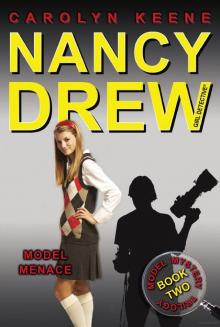 Model Menace 2
Model Menace 2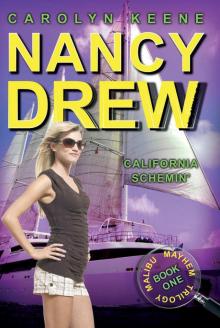 California Schemin': Book One in the Malibu Mayhem Trilogy
California Schemin': Book One in the Malibu Mayhem Trilogy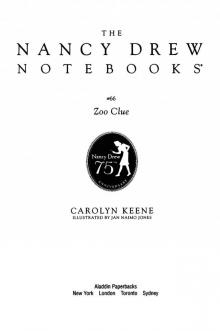 Zoo Clue (Nancy Drew Notebooks)
Zoo Clue (Nancy Drew Notebooks)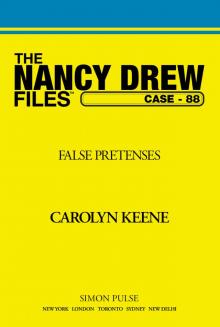 False Pretences
False Pretences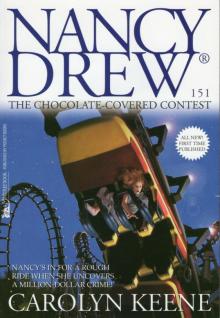 151 The Chocolate-Covered Contest
151 The Chocolate-Covered Contest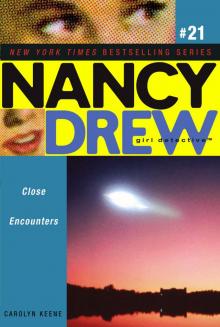 Close Encounters
Close Encounters The Emeral-Eyed Cat Mystery
The Emeral-Eyed Cat Mystery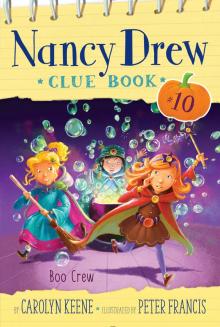 Boo Crew
Boo Crew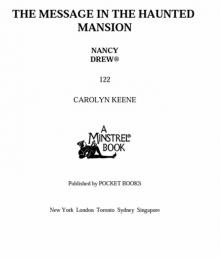 The Message in the Haunted Mansion (Nancy Drew Book 122)
The Message in the Haunted Mansion (Nancy Drew Book 122)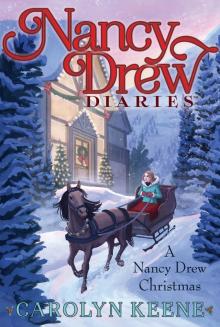 A Nancy Drew Christmas
A Nancy Drew Christmas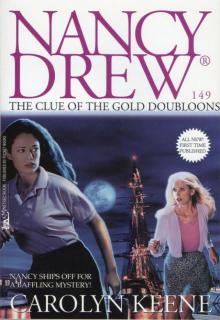 149 The Clue Of The Gold Doubloons
149 The Clue Of The Gold Doubloons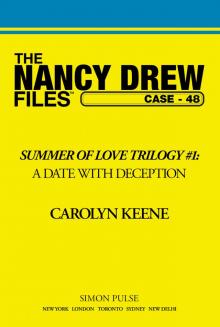 A Date with Deception
A Date with Deception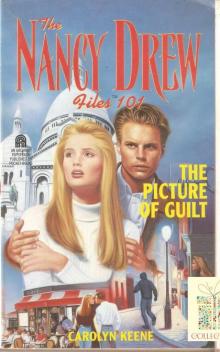 101 The Picture of Guilt
101 The Picture of Guilt The Secret in the Spooky Woods (Nancy Drew Notebooks Book 62)
The Secret in the Spooky Woods (Nancy Drew Notebooks Book 62)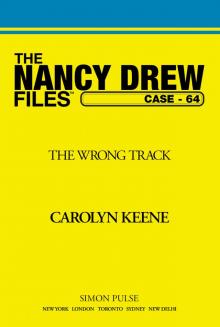 The Wrong Track
The Wrong Track Lights! Camera! Clues!
Lights! Camera! Clues!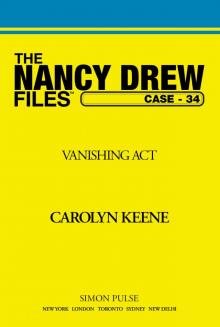 The Vanishing Act
The Vanishing Act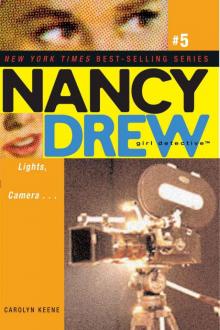 Lights, Camera . . .
Lights, Camera . . .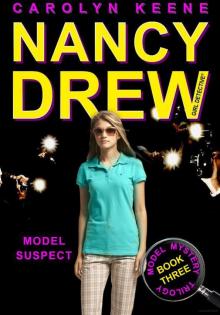 Model Suspect 3
Model Suspect 3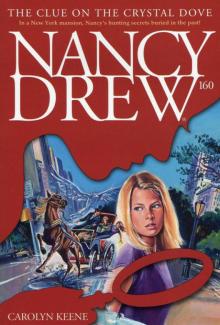 160 The Clue On The Crystal Dove
160 The Clue On The Crystal Dove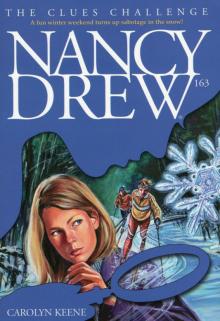 163 The Clues Challenge
163 The Clues Challenge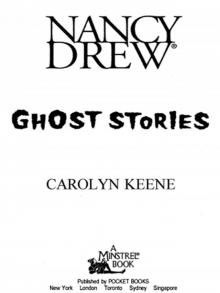 Ghost Stories (Nancy Drew)
Ghost Stories (Nancy Drew)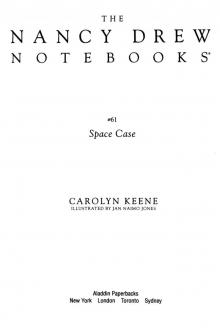 Space Case (Nancy Drew Notebooks Book 61)
Space Case (Nancy Drew Notebooks Book 61)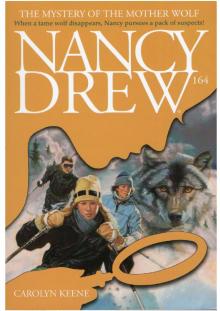 164 The Mystery Of The Mother Wolf
164 The Mystery Of The Mother Wolf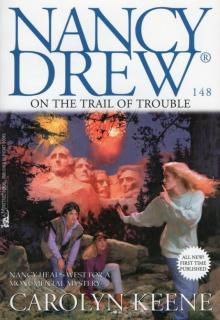 148 On The Trail Of Trouble
148 On The Trail Of Trouble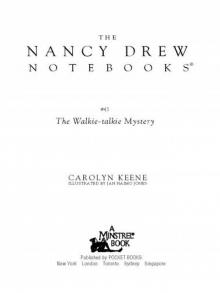 The Walkie-Talkie Mystery
The Walkie-Talkie Mystery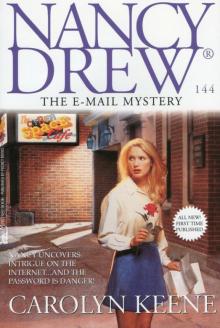 The E-Mail Mystery
The E-Mail Mystery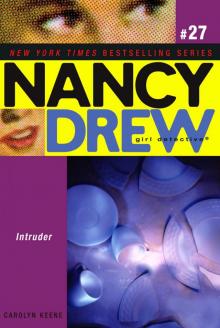 Intruder (Nancy Drew (All New) Girl Detective)
Intruder (Nancy Drew (All New) Girl Detective)![The Stolen Relic [Nancy Drew Girl Detective 007] Read online](http://i1.bookreadfree.com/i2/04/11/the_stolen_relic_nancy_drew_girl_detective_007_preview.jpg) The Stolen Relic [Nancy Drew Girl Detective 007]
The Stolen Relic [Nancy Drew Girl Detective 007]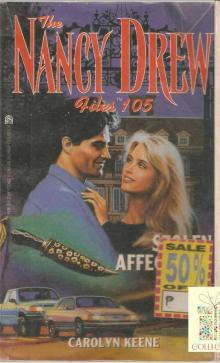 105 Stolen Affections
105 Stolen Affections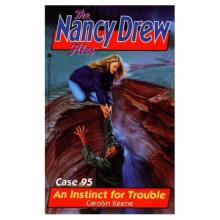 An Instict for Trouble
An Instict for Trouble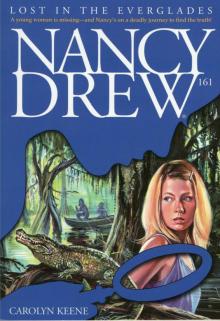 161 Lost In The Everglades
161 Lost In The Everglades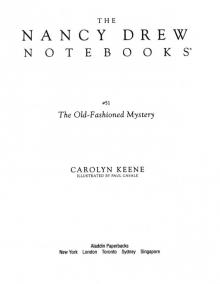 The Old-Fashioned Mystery
The Old-Fashioned Mystery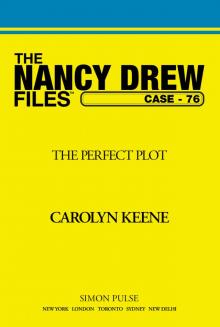 Perfect Plot
Perfect Plot